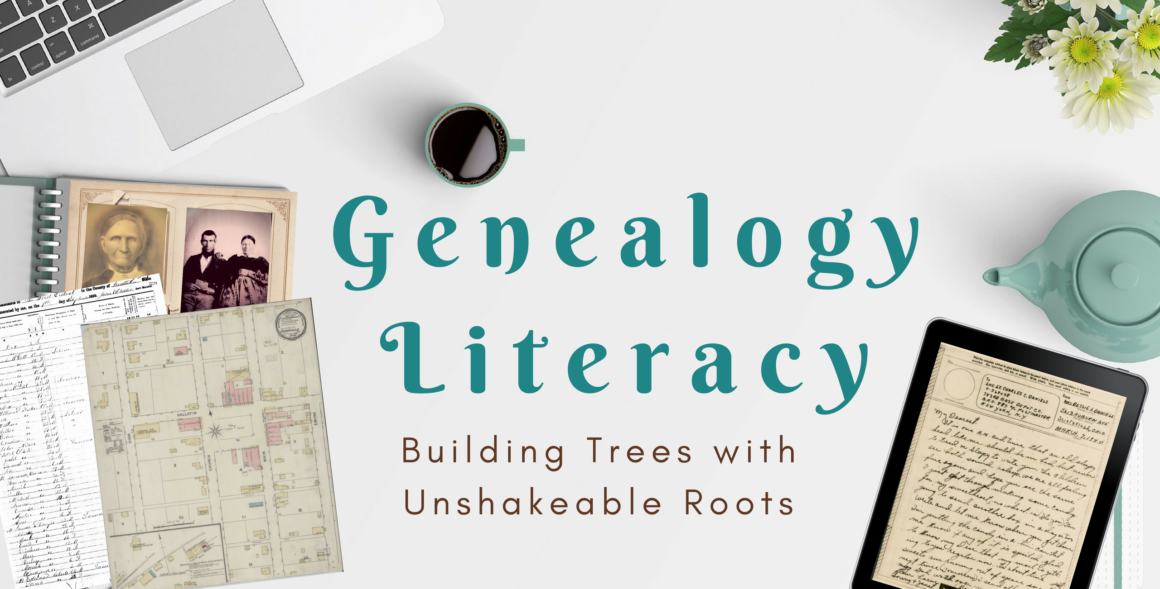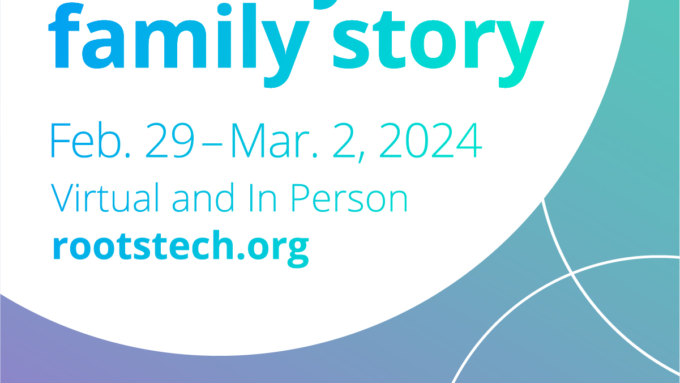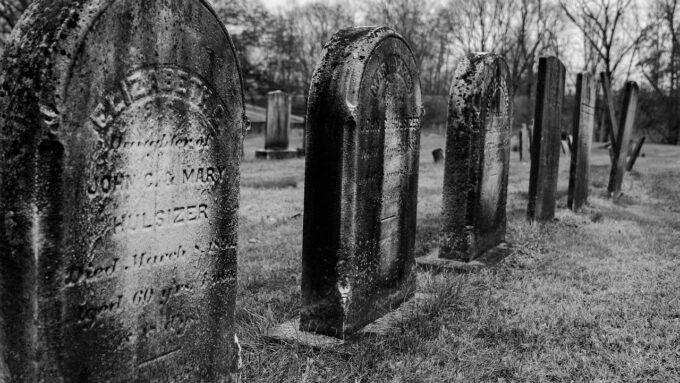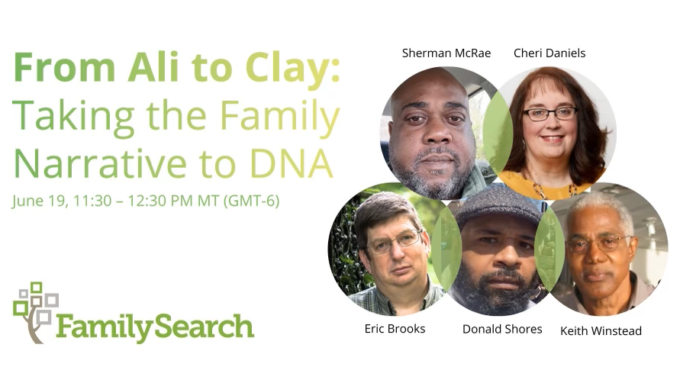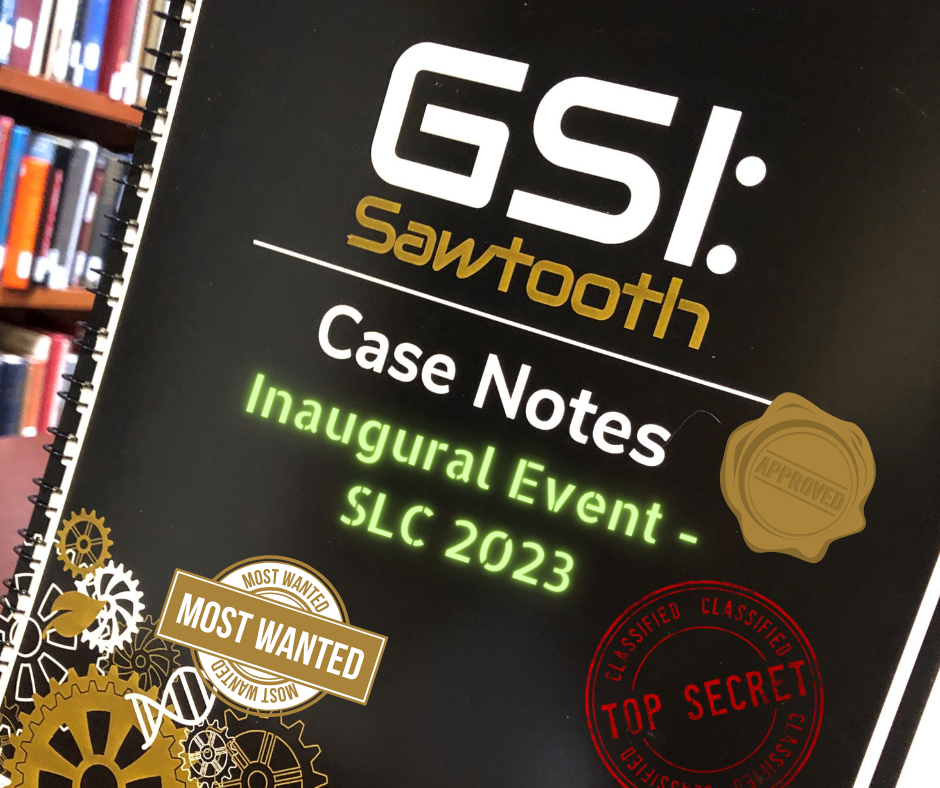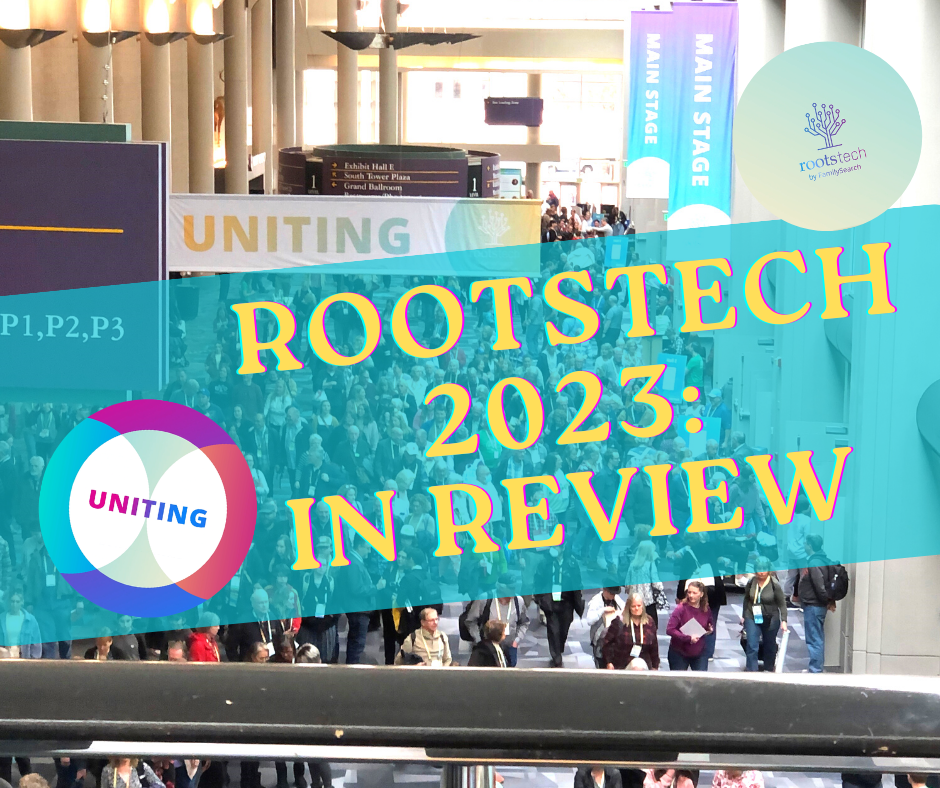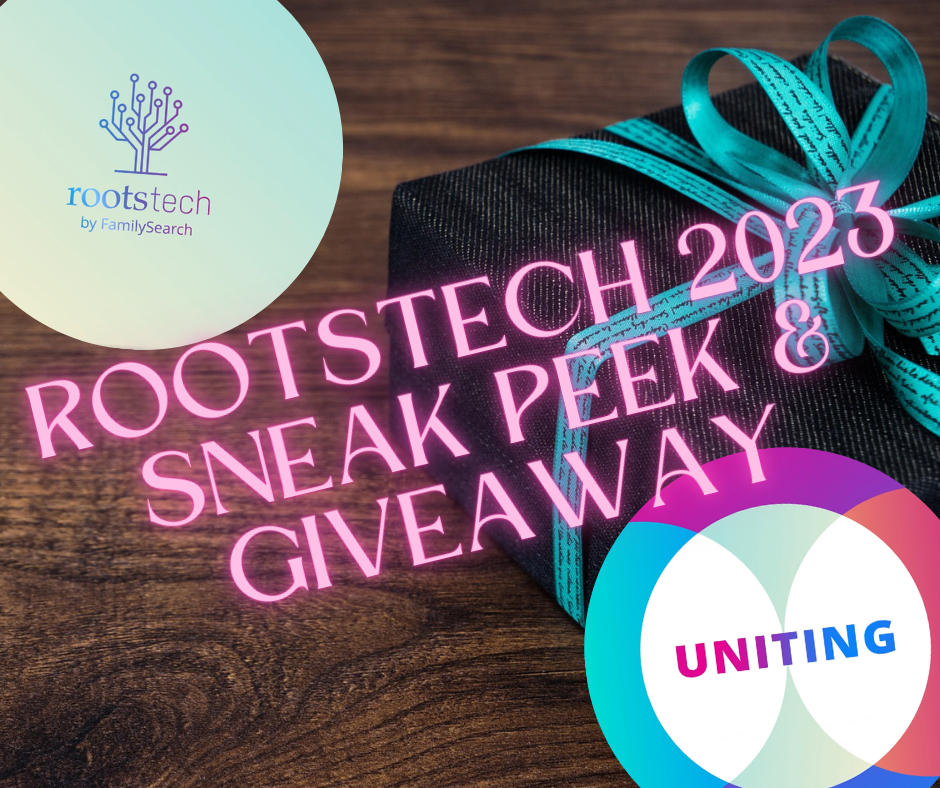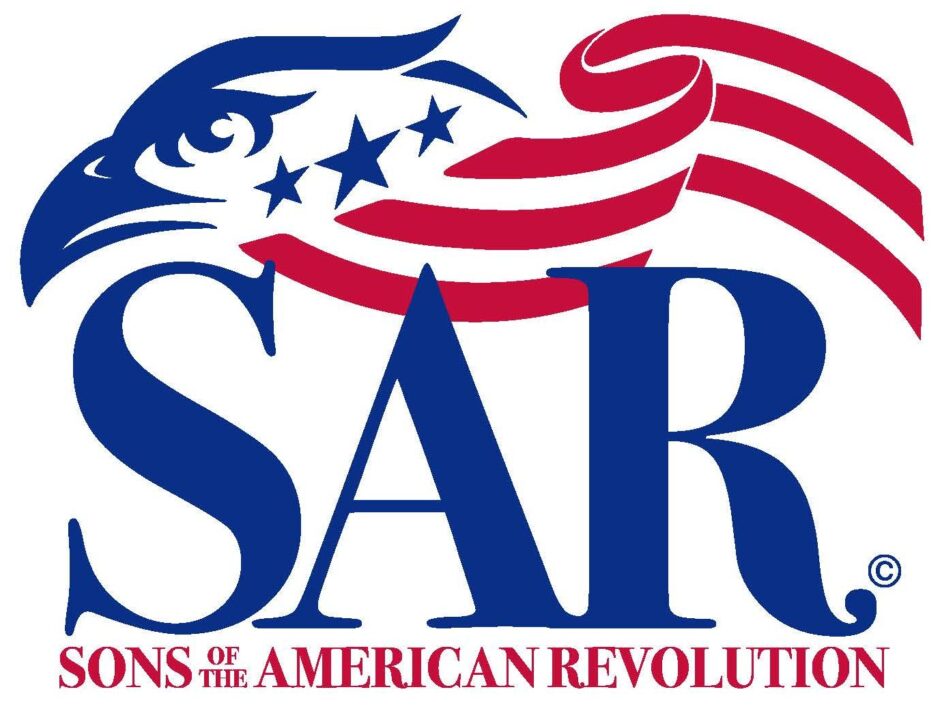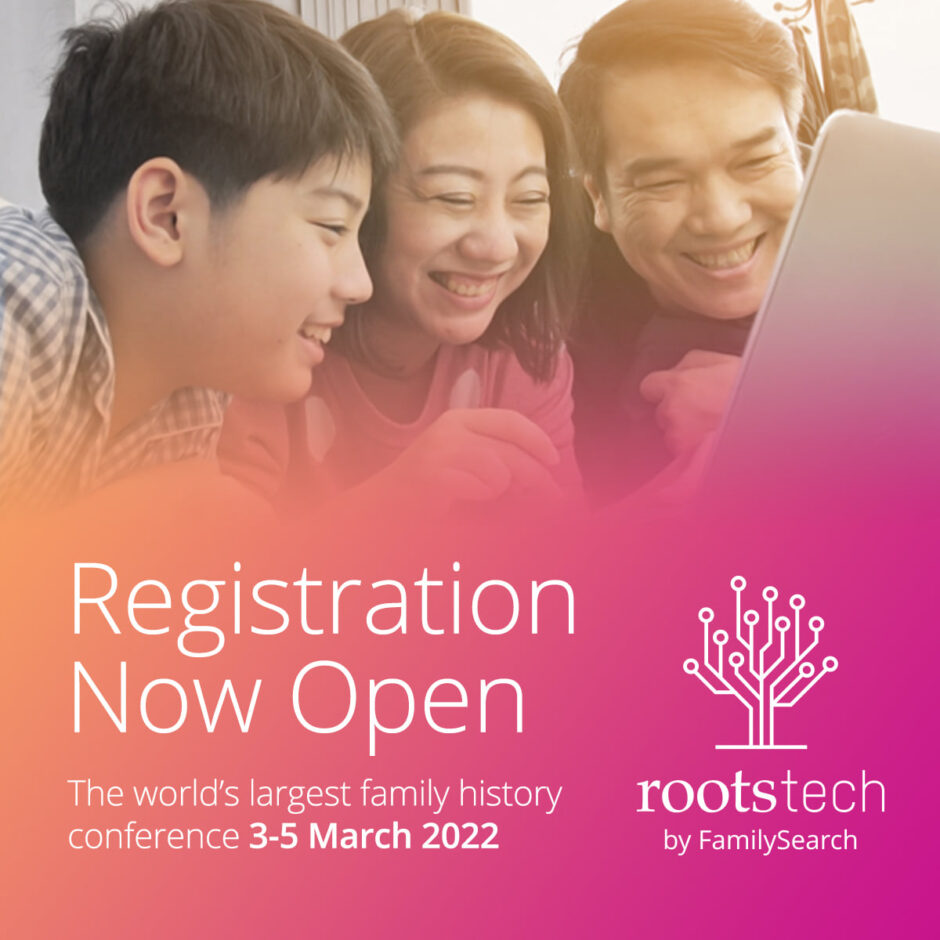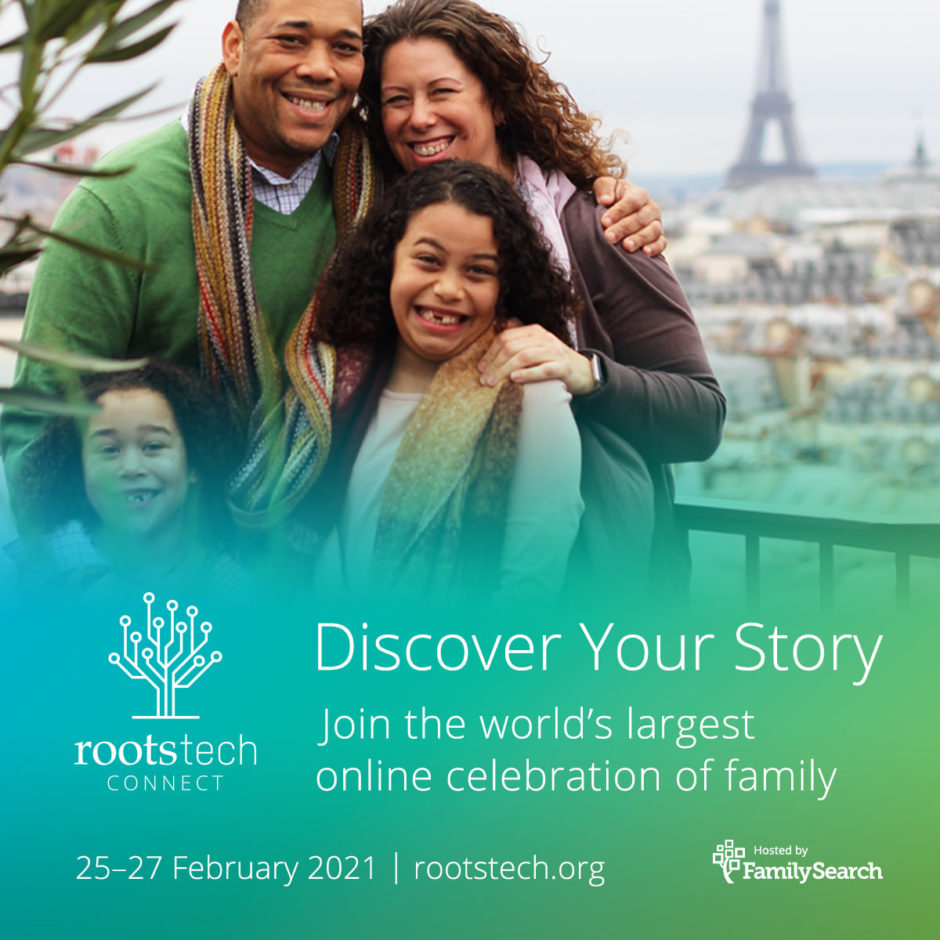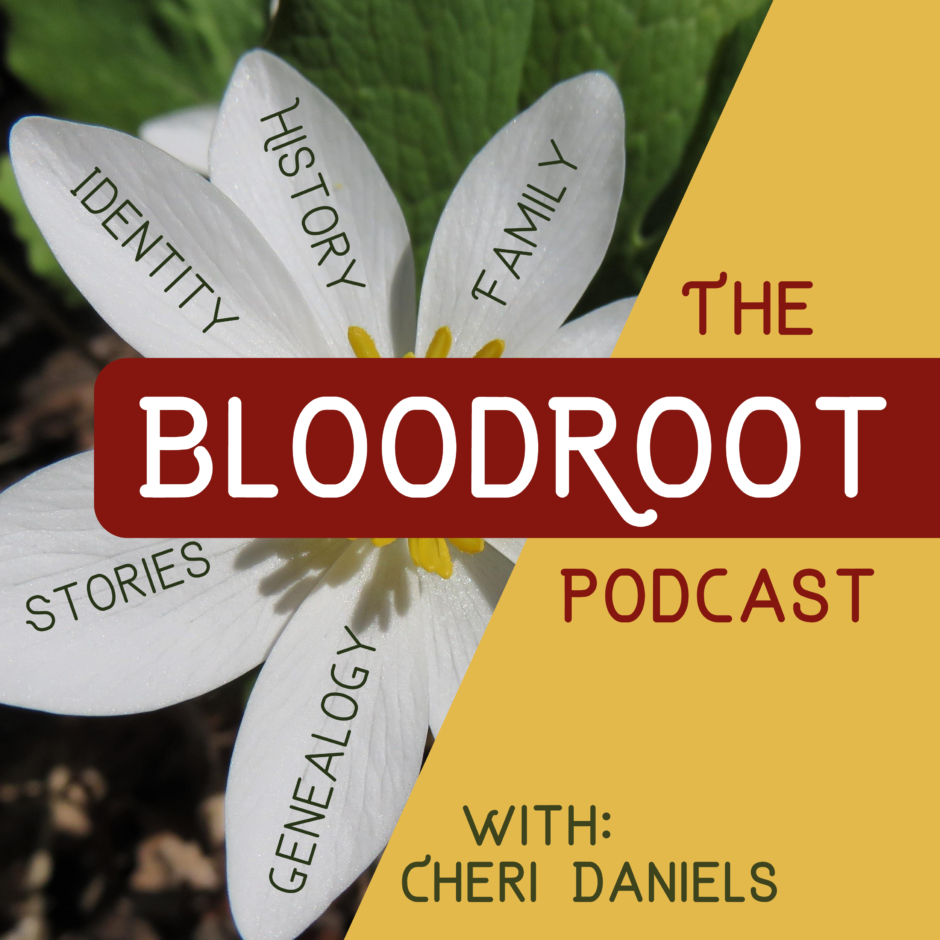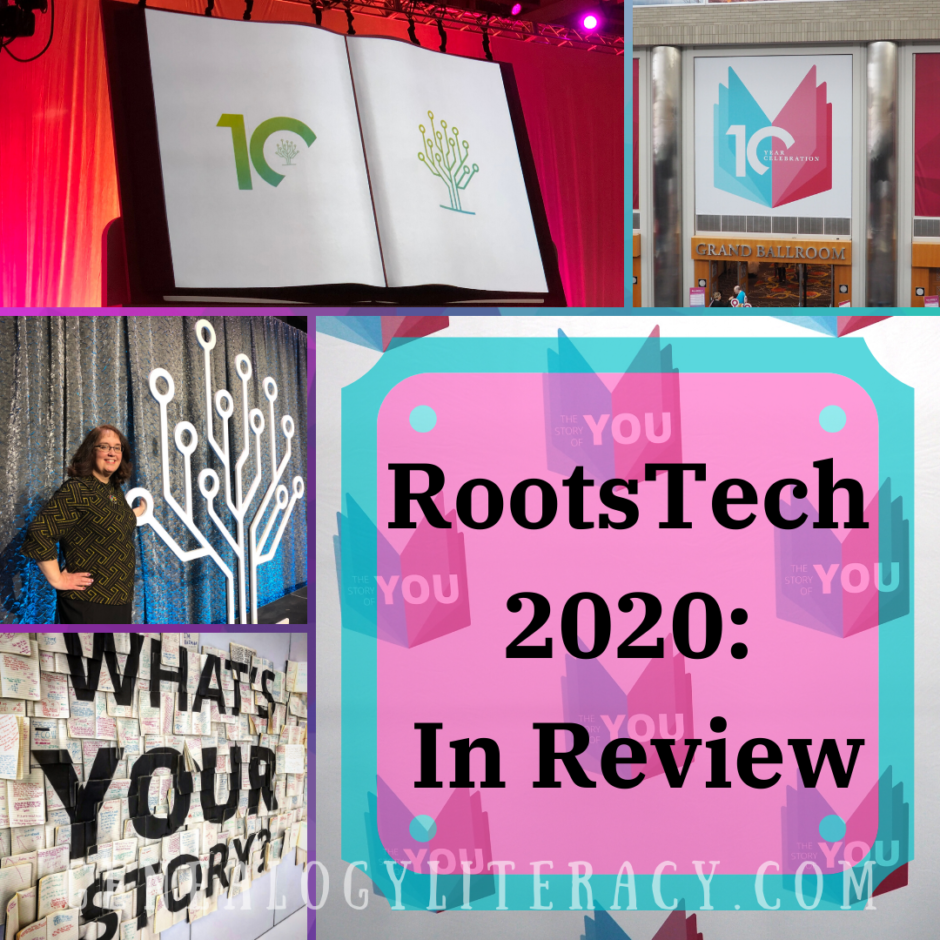I apologize for this message being so late since the RootsTech Family History Conference is now breathing down our necks – less than two months away! Unfortunately, during much of the RootsTech planning and announcements,… More
GSI: Genealogy Solves It – DNA Mystery Event
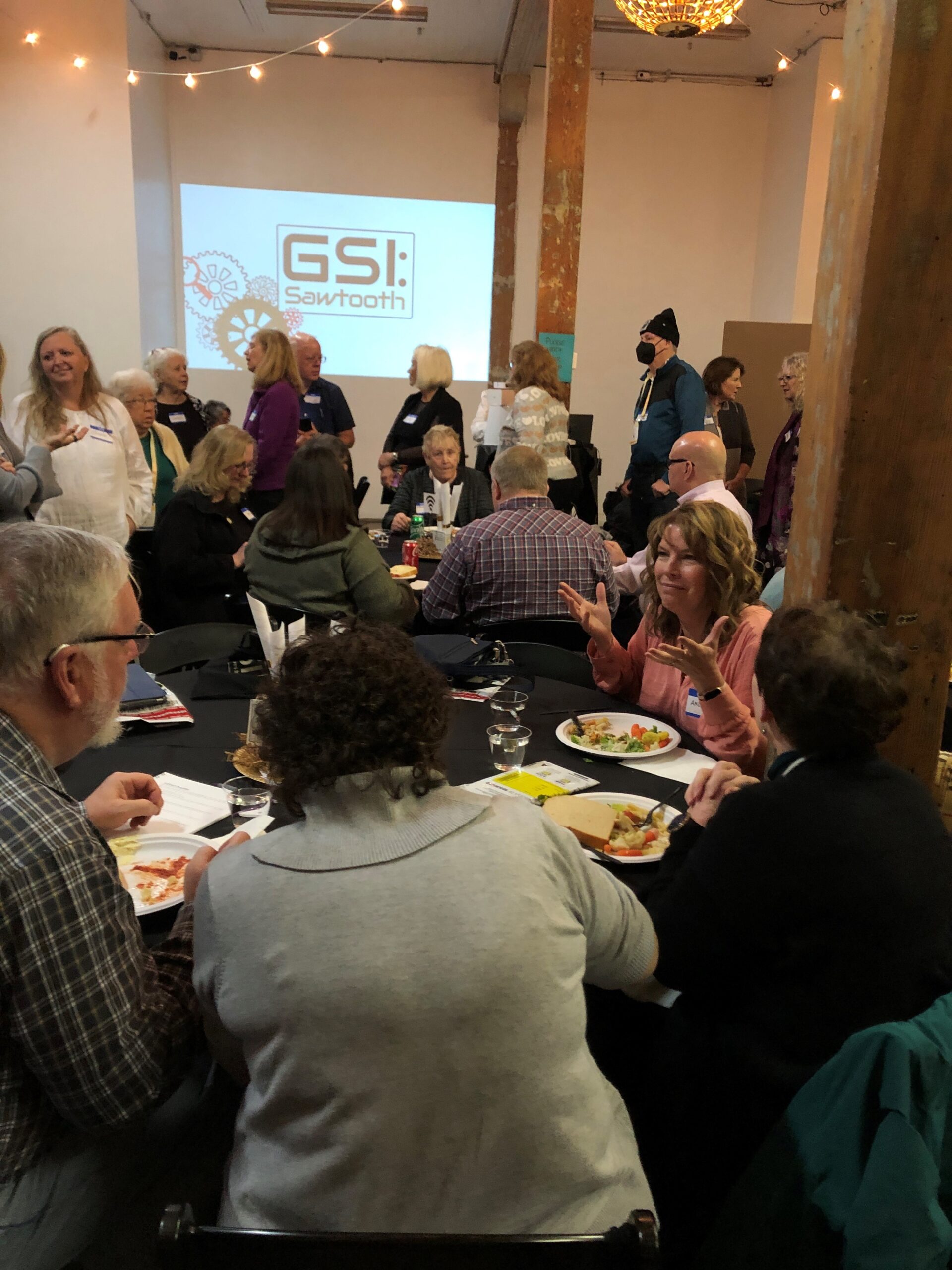 One little detail that I left out of my previous post was a very special RootsTech Eve event: GSI – Genealogy Solves It – DNA Mystery Dinner! This brand-new DNA/genealogy based murder mystery dinner was created by authors and DNA chums, Nathan Dylan Goodwin and Diahan Southard. These two are well known genie celebrities – you may have read one of their books, or attended a class given by either. Regardless, I’m sure you’ve heard their names over the years.
One little detail that I left out of my previous post was a very special RootsTech Eve event: GSI – Genealogy Solves It – DNA Mystery Dinner! This brand-new DNA/genealogy based murder mystery dinner was created by authors and DNA chums, Nathan Dylan Goodwin and Diahan Southard. These two are well known genie celebrities – you may have read one of their books, or attended a class given by either. Regardless, I’m sure you’ve heard their names over the years.
Just in case you haven’t a clue who I’m talking about…. With DNA as the foundation of their work (and careers) – Nathan writes genealogy/DNA murder mystery fiction books – Diahan writes and teaches about DNA and genealogy – the pair decided to create a unique experience that not only educated but greatly entertained their audience!
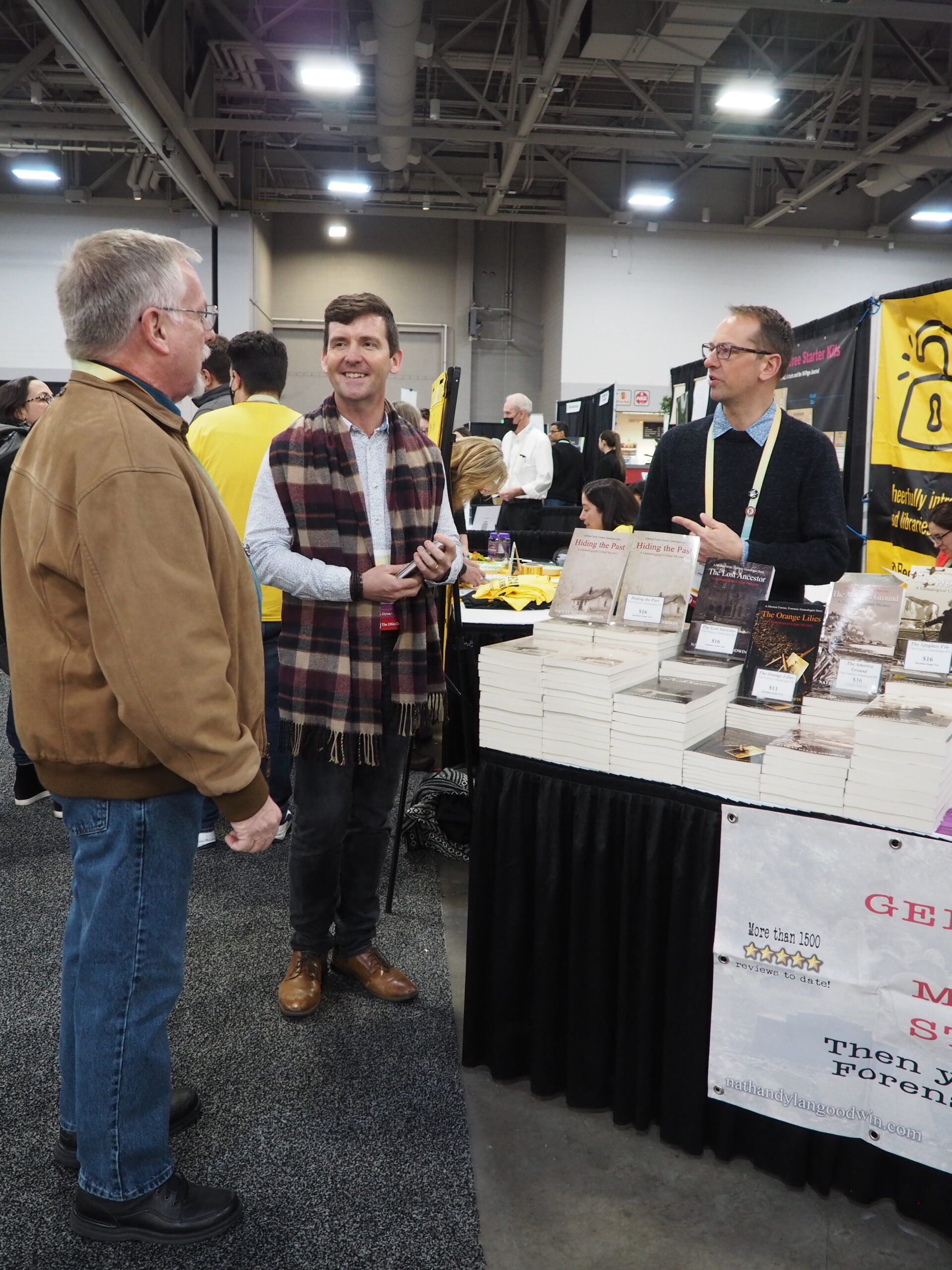
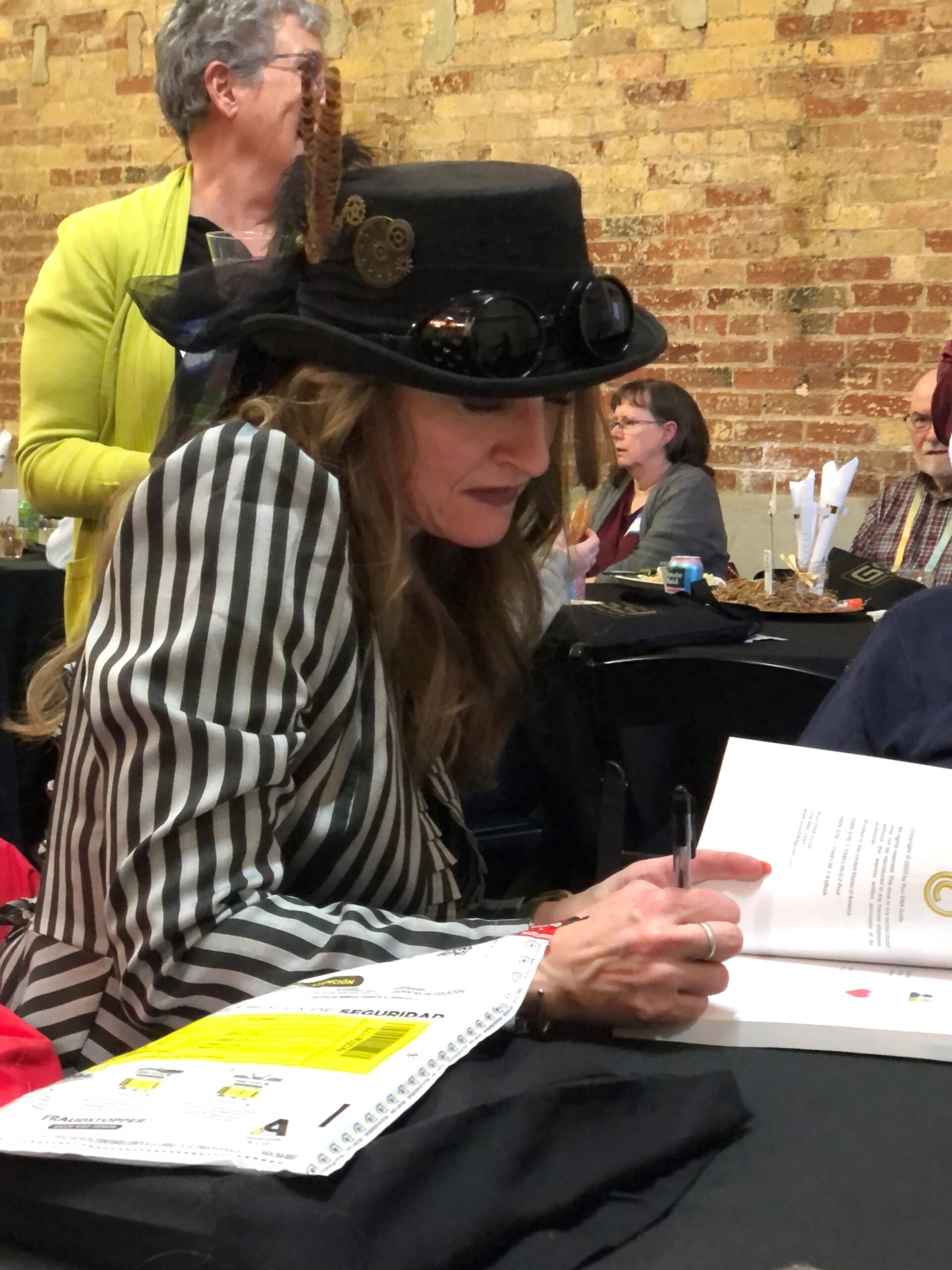
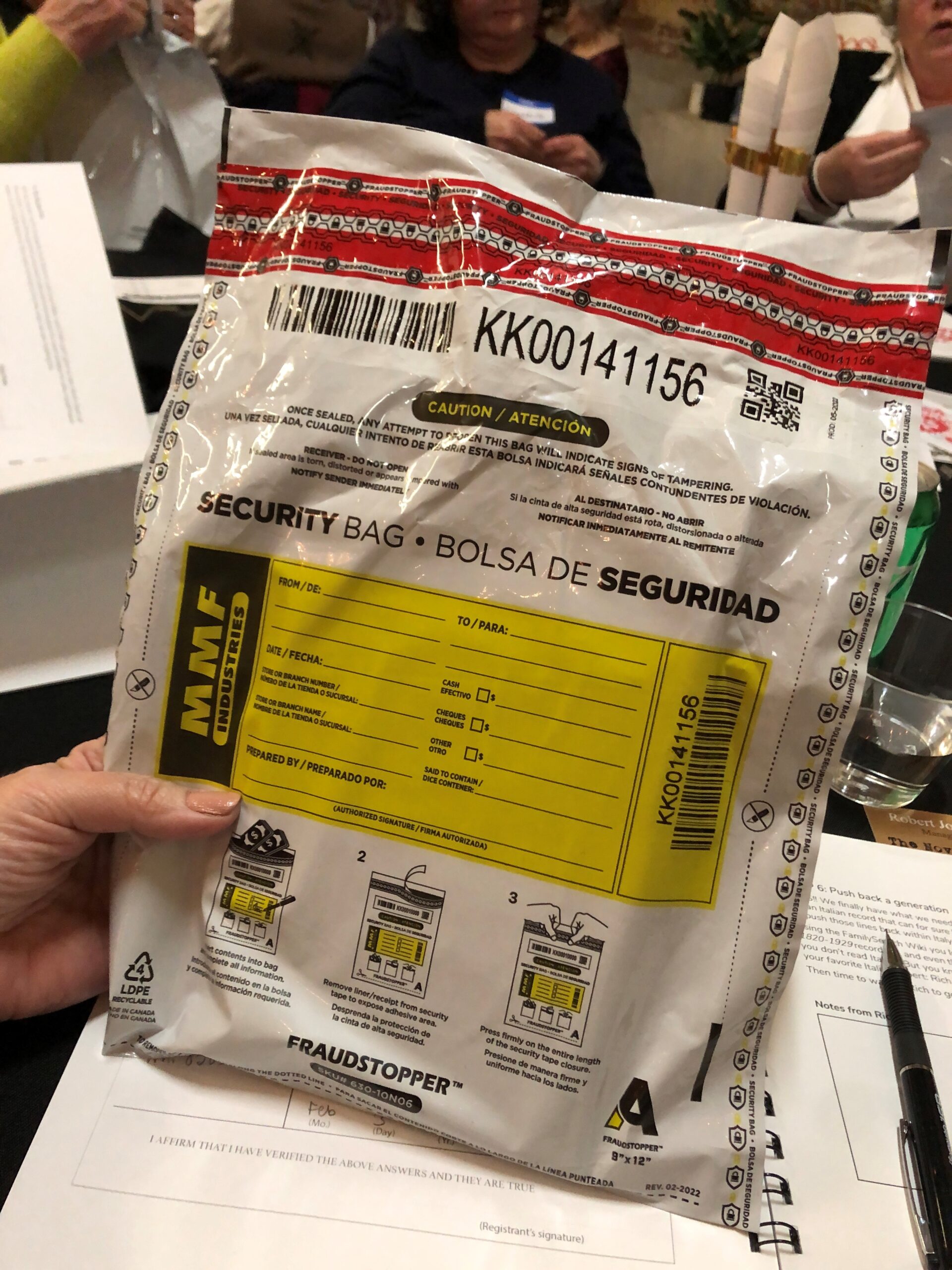
In review, I can honestly say I was a tad jolted at the attendance price tag when one of my friends excitedly sent me the announcement. Somewhere in the neighborhood of $150. However, here’s what we got for that price – personally signed copies of both of their current titles: Your DNA Guide and The Sawtooth Slayer (a $50 value). Attendees also received a lovely dinner with dessert. A goodie swag bag (embellished with gold glittery event acronym on the side) was also provided that included the case workbook, a mechanical pencil, a 60% off coupon from MyHeritage, and a sealed evidence bag with tons of little clues to help solve the case. (Really loved the sealed evidence bag – nice touch!) In other words – all of this fit very nicely into that price tag.
Then, for the next four hours, each attendee had to work on solving the case – with their fellow team members at the table. If you just groaned at the thought of four hours – I am delighted to report, it passed very quickly because we were all having so much fun! I really had my doubts about their ability to create an event that could entertain and educate without overwhelming us with DNA fundamentals. But the details that went into the creation of this event made it a delight from start to finish.
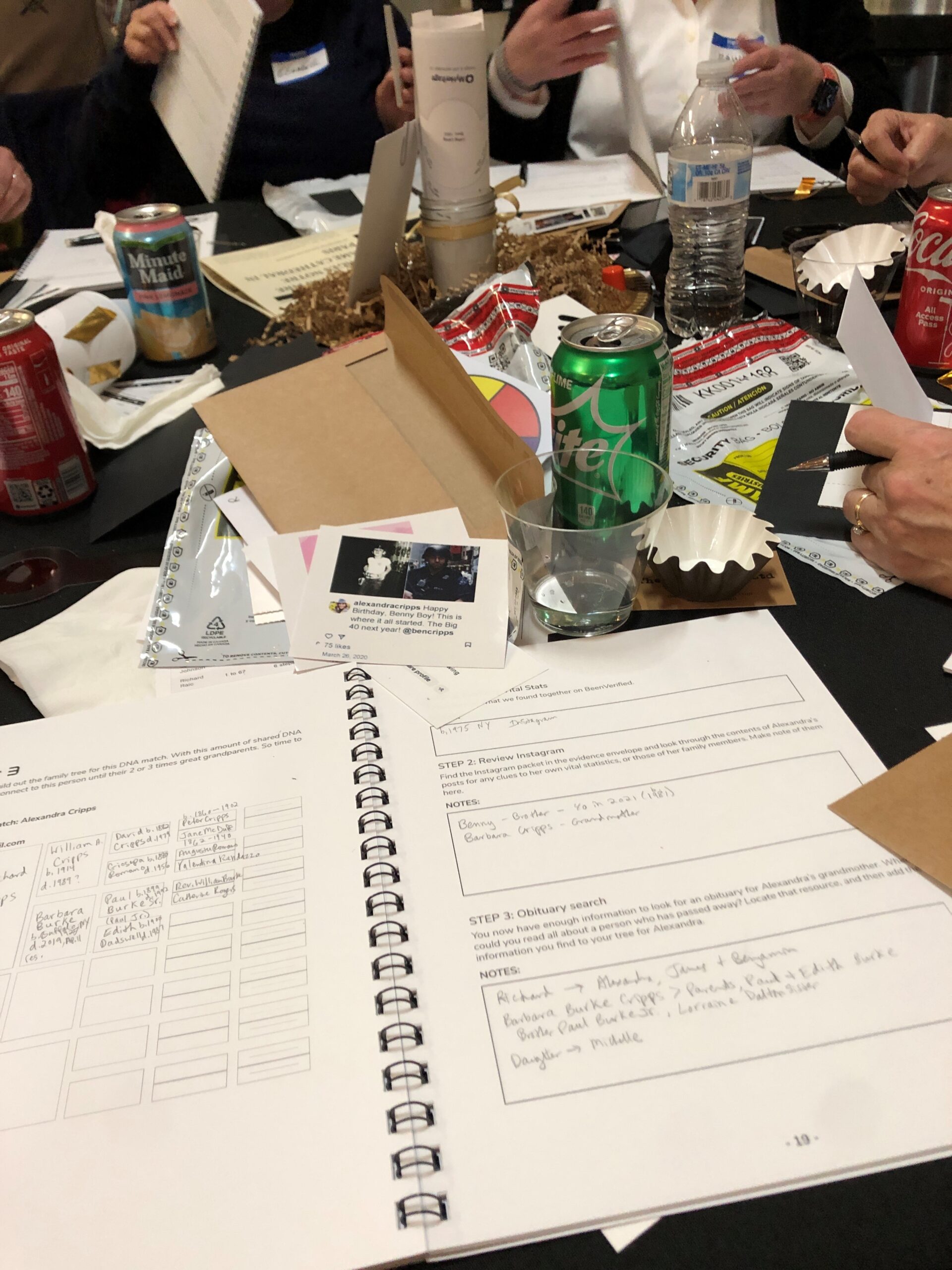
I’m going to concentrate on the details for a second – without revealing the nuts and bolts of their event. The hosts were all dressed in steampunk inspired costumes. The workbook was professionally printed on very high quality paper with gradual lessons that utilized the clues encountered along the way. There were fun moments when we had to roam about the room and ask for other clues, which got us up out of our seats. There were special celebrity genie guest appearances in the form of videos that took on character identities from the Sawtooth Slayer – including a surprise guest in the room (Shhhh – Rich Venezia!) and surprise video from CeCe Moore congratulating us on our work!
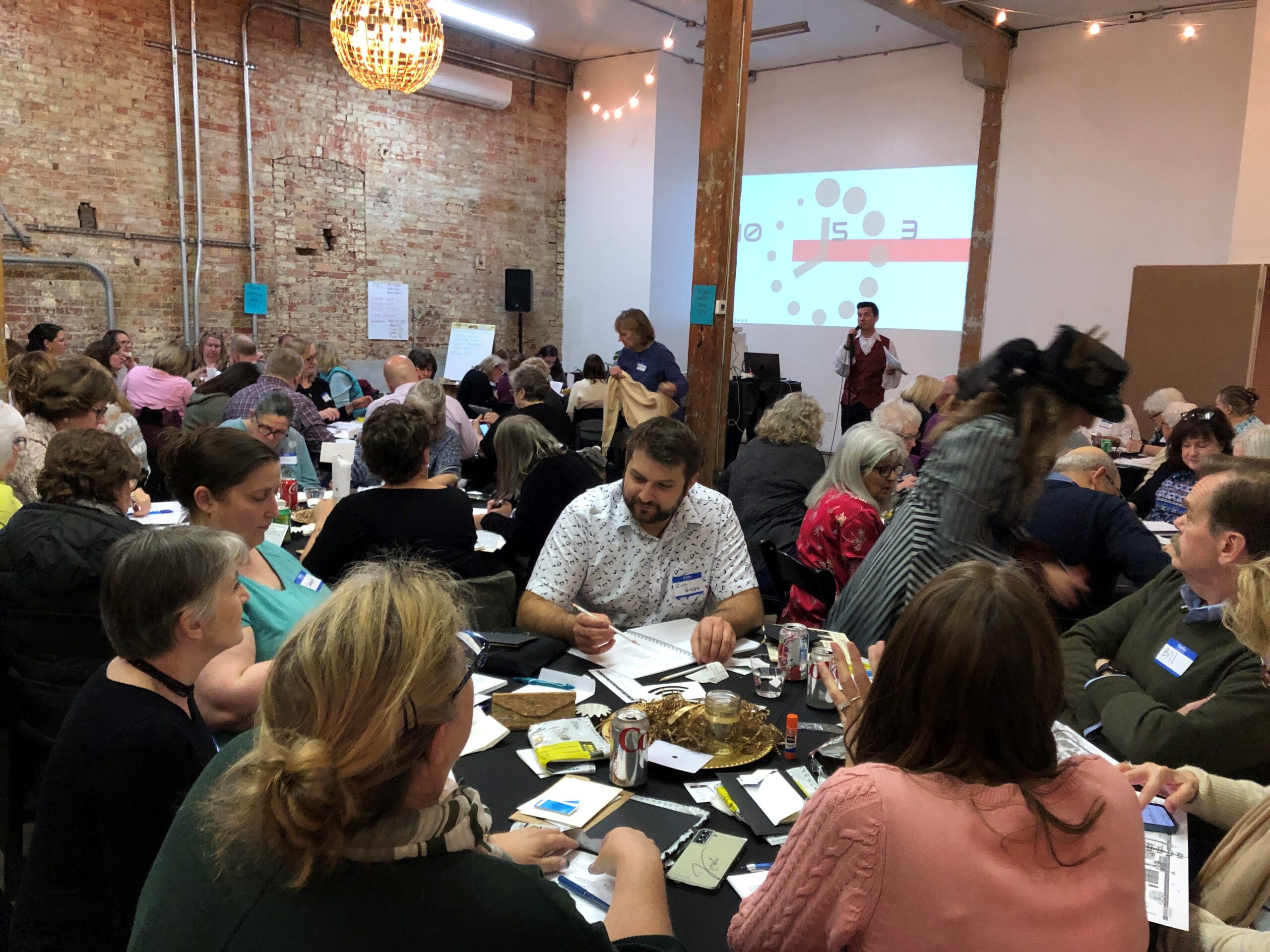
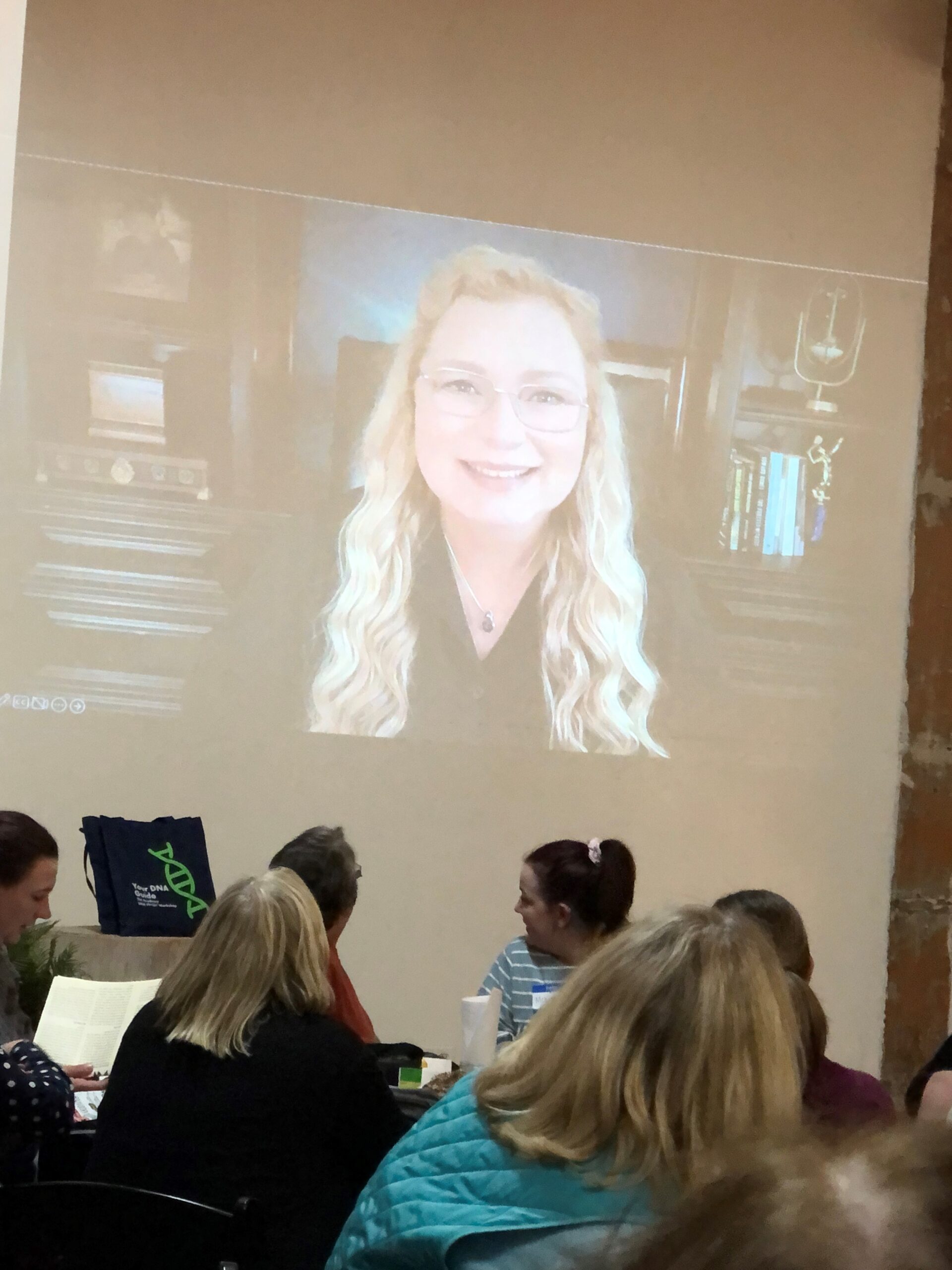
Once we got to open the sealed evidence bag, the red viewer and sealed envelopes for phased openings kept us all busy and in hot pursuit of the killer. What a feat they pulled off! To keep a large group of seasoned genealogists laughing, entertained, and engaged for four hours is nothing short of a miracle. I don’t think I spotted one bored person in the room. Oh – and BTW – I was one of the winners of a year’s subscription to the full MyHeritage site! That was a fun little nugget of adventure as we looked for gold stickers on our chairs.
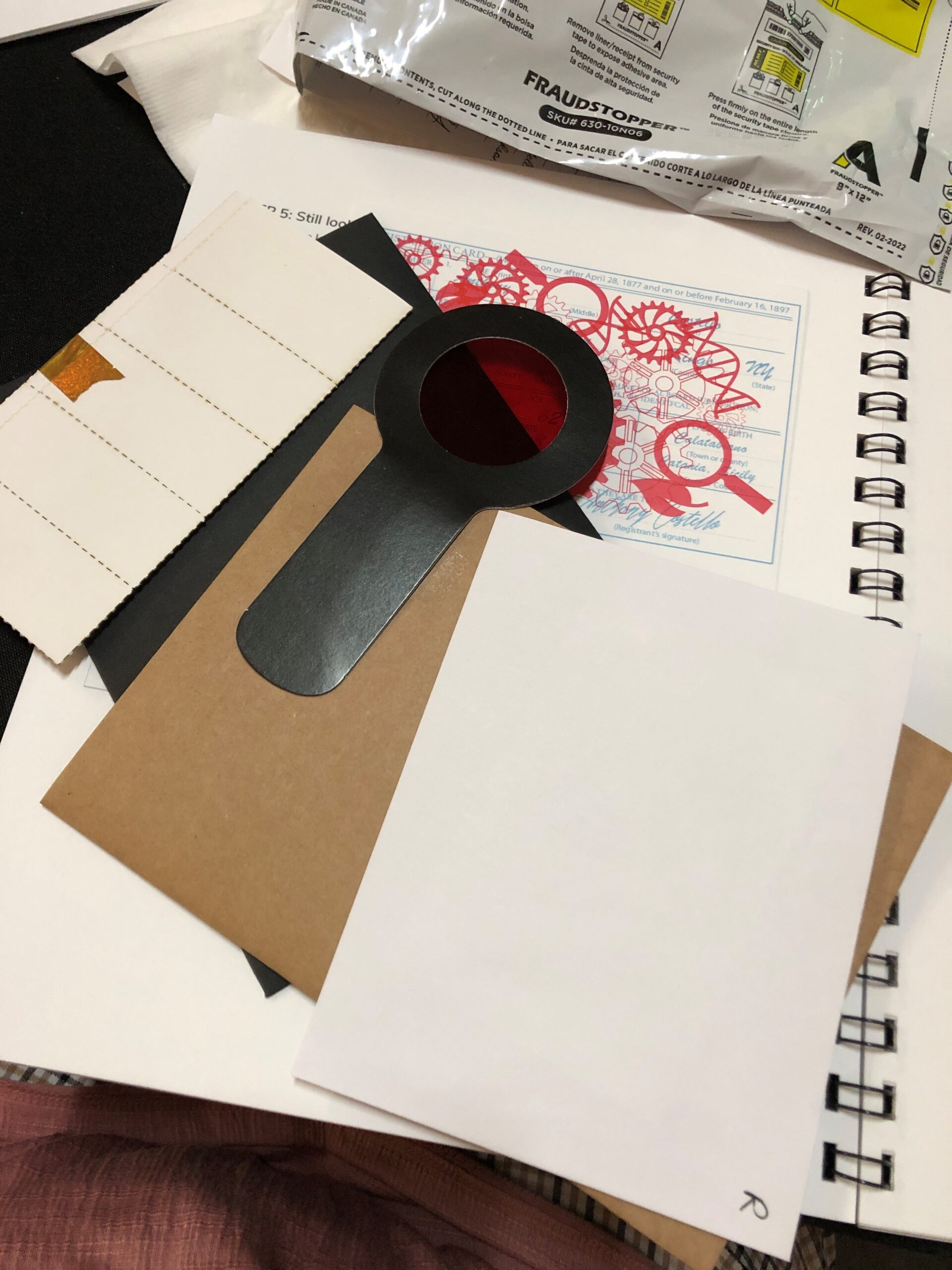
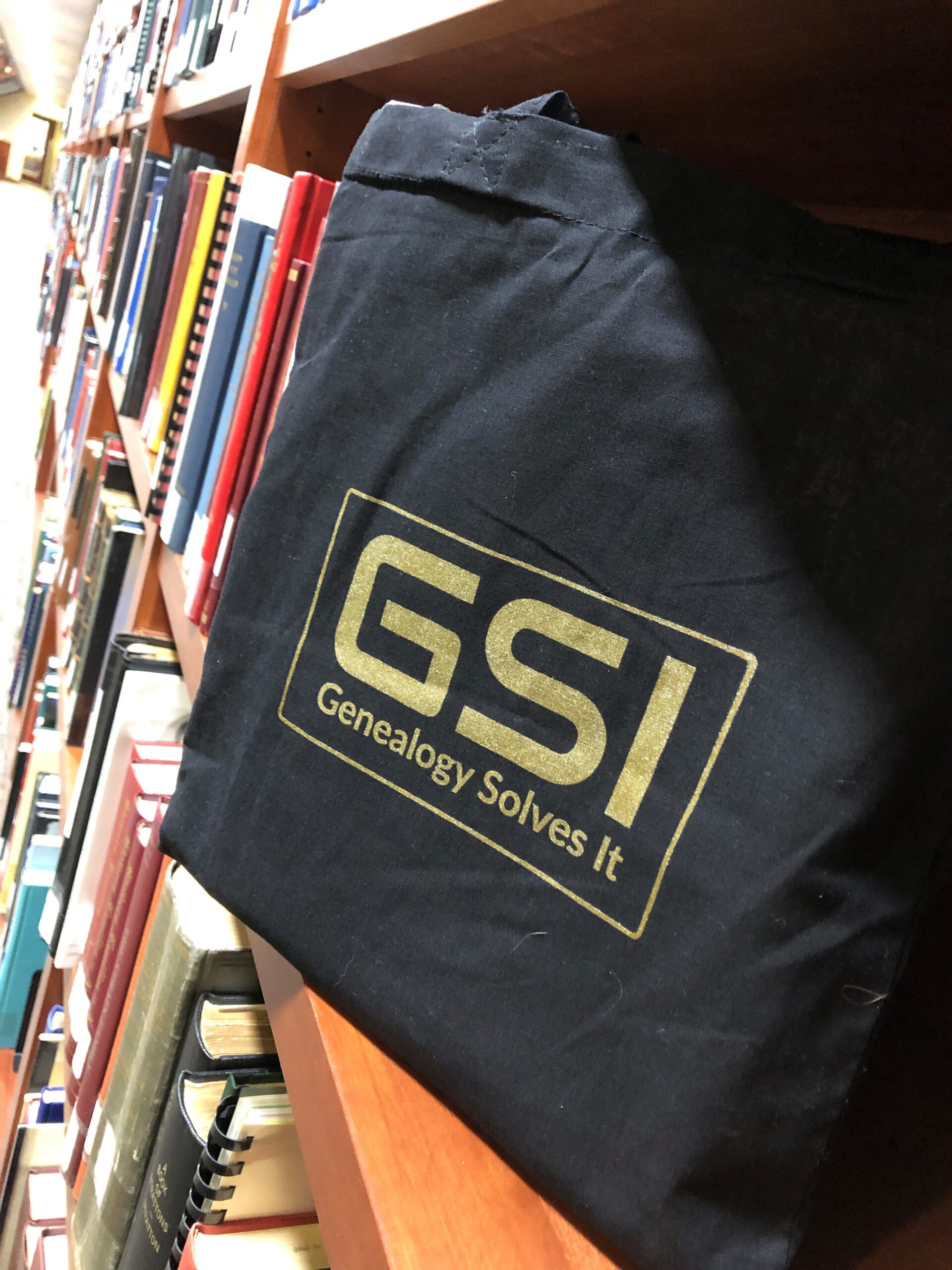
This was such an epic night – and I am comfortable declaring it a rousing success! The word on the street is that they intend to create more of these events in the future – and perhaps – even some virtually! My advice to them on a virtual model – make sure the cost includes shipping everyone the swag, evidence bag and clue packets – these demonstrate the time and effort that went into making this event – plus, it’s a fun, tactile, way to get your hands dirty in the genealogy and DNA!
Be watching their websites to catch future events – you don’t want to miss out on this unique genealogy/DNA experience! BTW, as a post script – Nathan put out a link to gauge interest in future events (both in-person and virtually) – please visit his site to express your support!

RootsTech 2023 Recap and Review
As a longtime attendee and supporter of the RootsTech Conference (since 2011), I have the privilege of declaring this amazing event – BACK and better than ever! Don’t get me wrong – thanks to some amazing people, RootsTech kept going virtually through Covid – but having the in-person event back in such a big way is nothing short of a miracle!
The organizers of the RootsTech suite of events faced the biggest challenges we could ever imagine when Covid reared its ugly head. But ironically, adversity often has a way of forcing us into areas of creativity and desperation that result in an entirely new creation.
In this case, the new creation was a conference that reached global audiences and sustained our fix for genealogy education and connection despite the worst possible historical event that stretched beyond our dreaded fears.
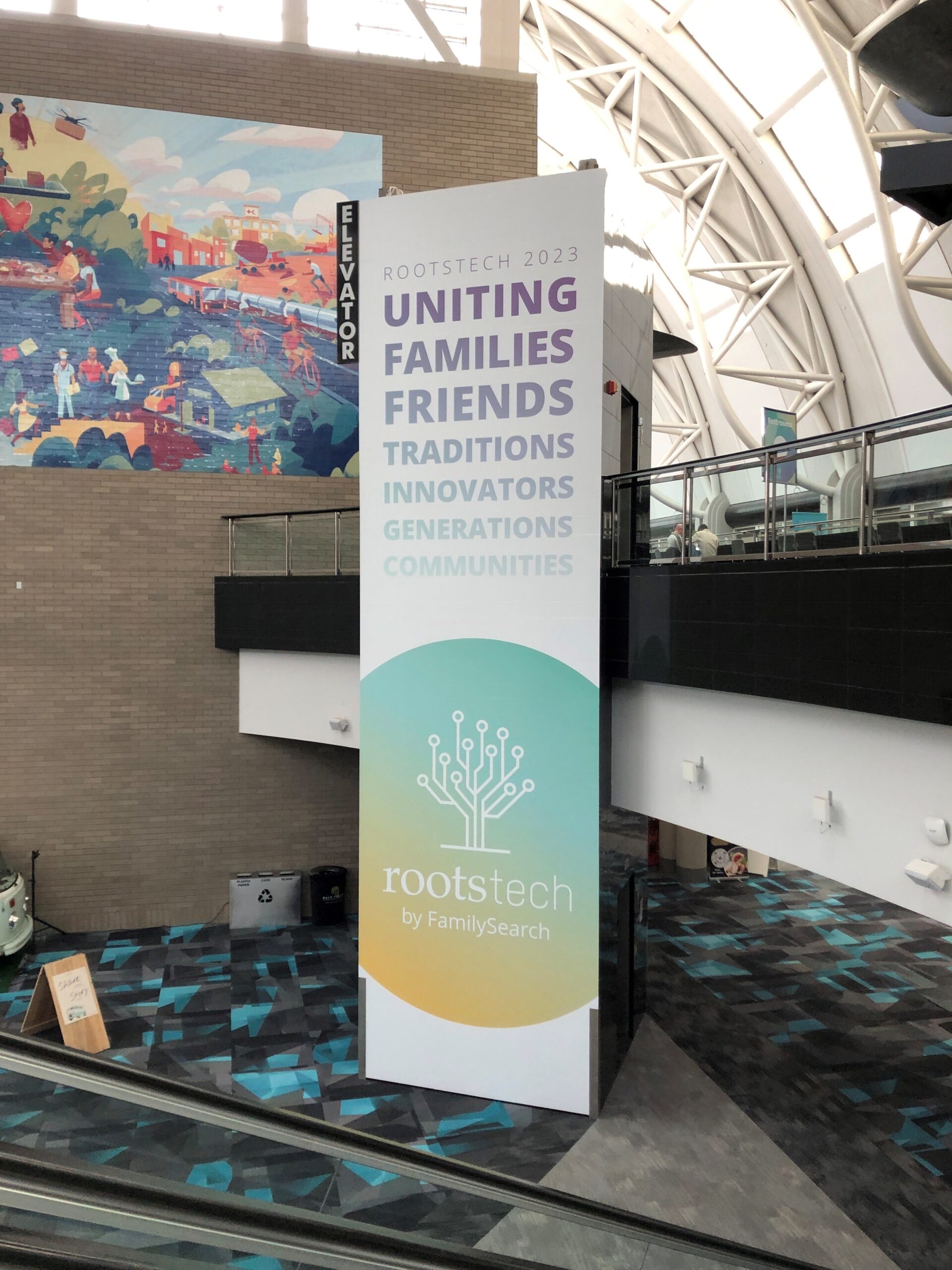 Now that 2023 has arrived and Covid has at least loosened its deadly grip on the world, the RootsTech team made the brave decision to return to Salt Lake City – in person – while keeping the virtual options fresh and alive to maintain the global connections built over the past two years.
Now that 2023 has arrived and Covid has at least loosened its deadly grip on the world, the RootsTech team made the brave decision to return to Salt Lake City – in person – while keeping the virtual options fresh and alive to maintain the global connections built over the past two years.
For those who attended this year and quipped that the conference was not as large as the years prior to Covid – I say – RootsTech is bigger in its overall reach since it is fully hybrid – and the 2023 on-site event was only slightly smaller than 2020.
I remember this conference in its infancy, back in 2011 – when the entire conference fit into the north side of the Salt Palace. That smaller footprint was sustained for a few years prior to its move to the entire venue. Even in its first year, attendance was double the average attendance of the other national genealogical society conferences – back then we had about 2 genealogy conferences that drew between 1500-2500 – and the first RootsTech more than doubled this number.
In 2020, this conference had reached its golden on-site peak at 30,000+ attendees over the course of three days, and every nook and cranny of the Salt Palace was packed with genealogy fun. None of us realized how close Covid was that year. Although, many of us found out upon our return home when the toilet paper shelves were emptying, and we had a mysterious head cold that came out of nowhere.
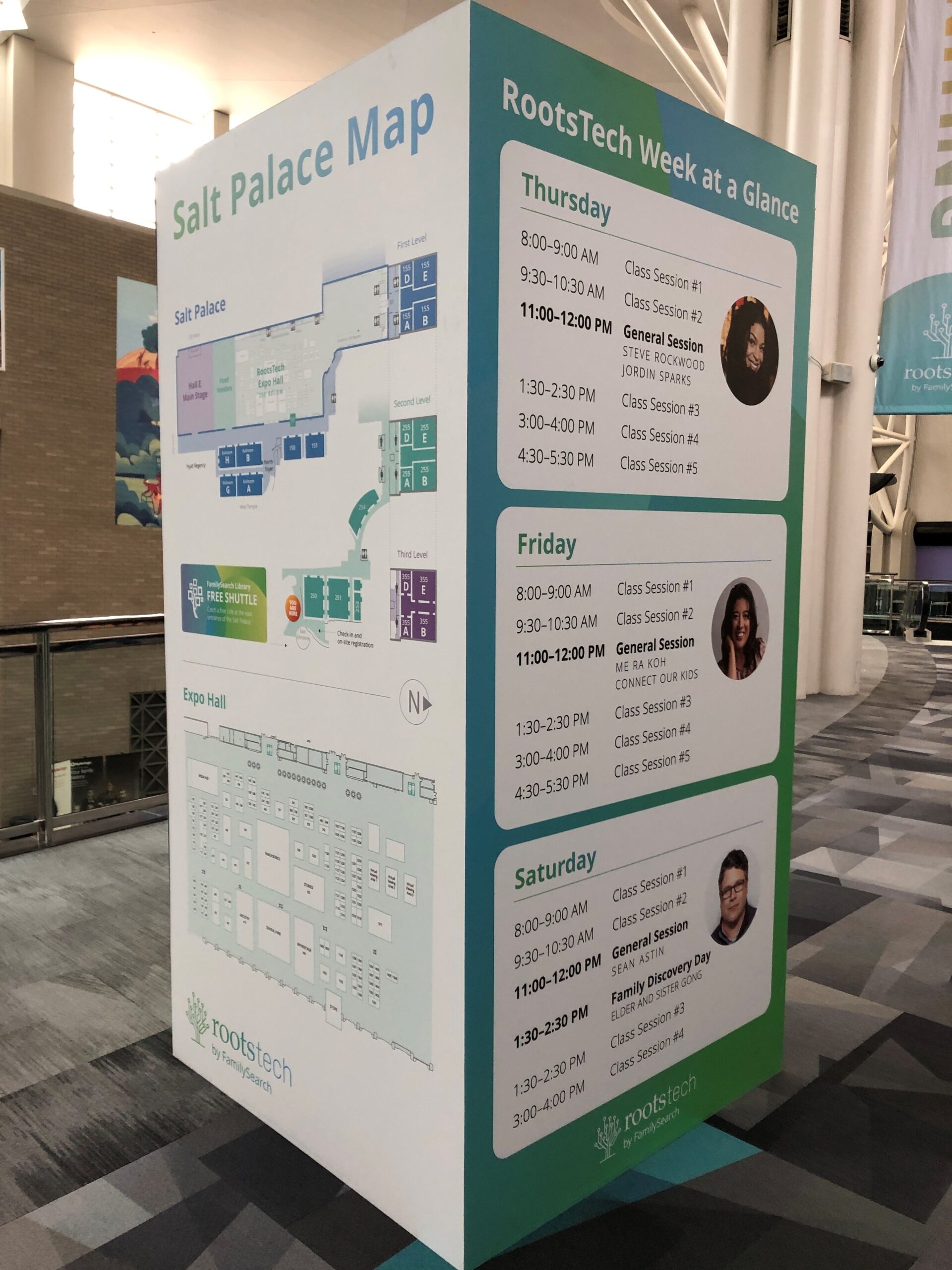 And the blunt fact that we all need to remember is that for over three years, we lived in a terrified state. So many people died or almost died across our globe. We lost too many wonderful genie friends, and we will never be the same in many ways.
And the blunt fact that we all need to remember is that for over three years, we lived in a terrified state. So many people died or almost died across our globe. We lost too many wonderful genie friends, and we will never be the same in many ways.
Despite the global terror, the RootsTech team marched on, providing us with two solid years of free virtual programming and engagement. Now that they pulled the chord to return to in-person classes, they never left the virtual attendees behind and made sure to provide an entirely different set of classes (plus live-streaming some on-site sessions) that equaled the number of in-person sessions in quality and quantity.
The result was an amazing end product that satisfied both audiences – uniting us on a scale that we have never seen before – which was a goal of this this year’s theme: Uniting. It also opens the door for more great speakers to participate without physical travel where that might be impossible or a great burden. While the on-site crowd was slightly smaller than the peak of attendance in 2020, I was delighted to see that the buzz and energy had returned. With the higher travel costs, and some folks just not ready for post-Covid travel to such a large event – the first year back was NEVER going to be as large as 2020.
 But what a wonderful turn out it turned out to be!
But what a wonderful turn out it turned out to be!
I admit to getting teary eyed a few times with all of the hugs and selfies, main stage crowds and energy, seeing audience reactions/engagement, and connecting with our genie tribe in person. The experience truly reminded me that we cannot take these experiences for granted. The truth is, we almost lost them forever. If it wasn’t for the tenacity of the RootsTech organizing team, all of this was in danger. While standing in the giant exhibit hall that is so large and full of genealogy goodness, I said a prayer of thanksgiving.
You see, as much as I love a good genealogy conference, and I’ve been to (and spoken at) many national conferences in the past dozen or so years, there has never been anything to compare to RootsTech. All I have written so far should put this yearly event on your genealogy bucket list – and if you need more incentive – that exhibit hall is larger than ANY you have seen in the genealogy field. All the others are very small shadows compared to the RootsTech exhibit hall – and – once you’ve seen it, you can’t unsee it.
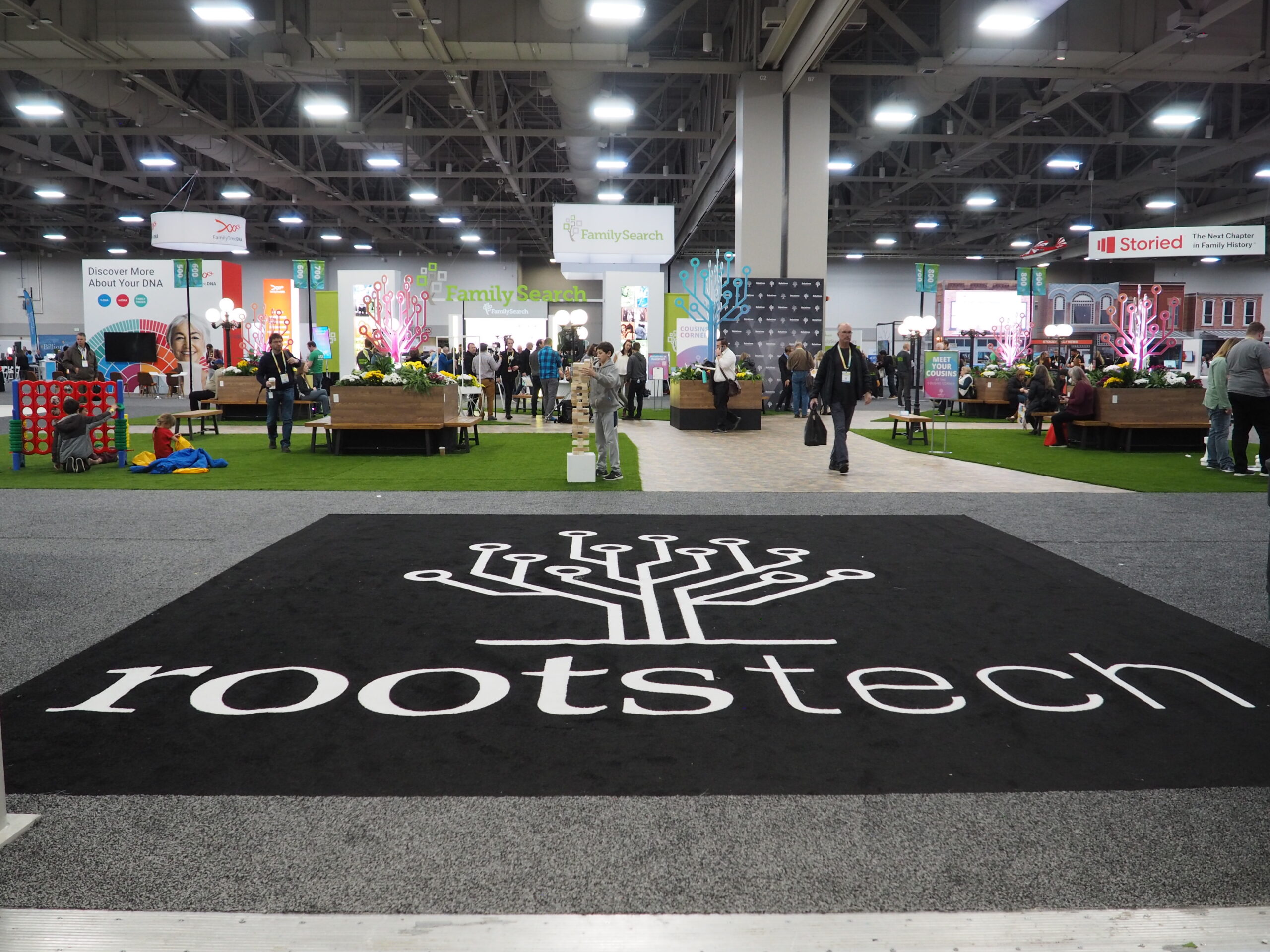
Some highlights of this year:
With some slightly smaller attendance numbers, the footprint of the event was roughly the same – so everything felt, familiar, comfortable, and slightly less cramped in your favorite sessions.
The energy, connections, and buzz were back in the main stage, the exhibit hall, and the sessions! This is why we come to RootsTech, and it did not disappoint!
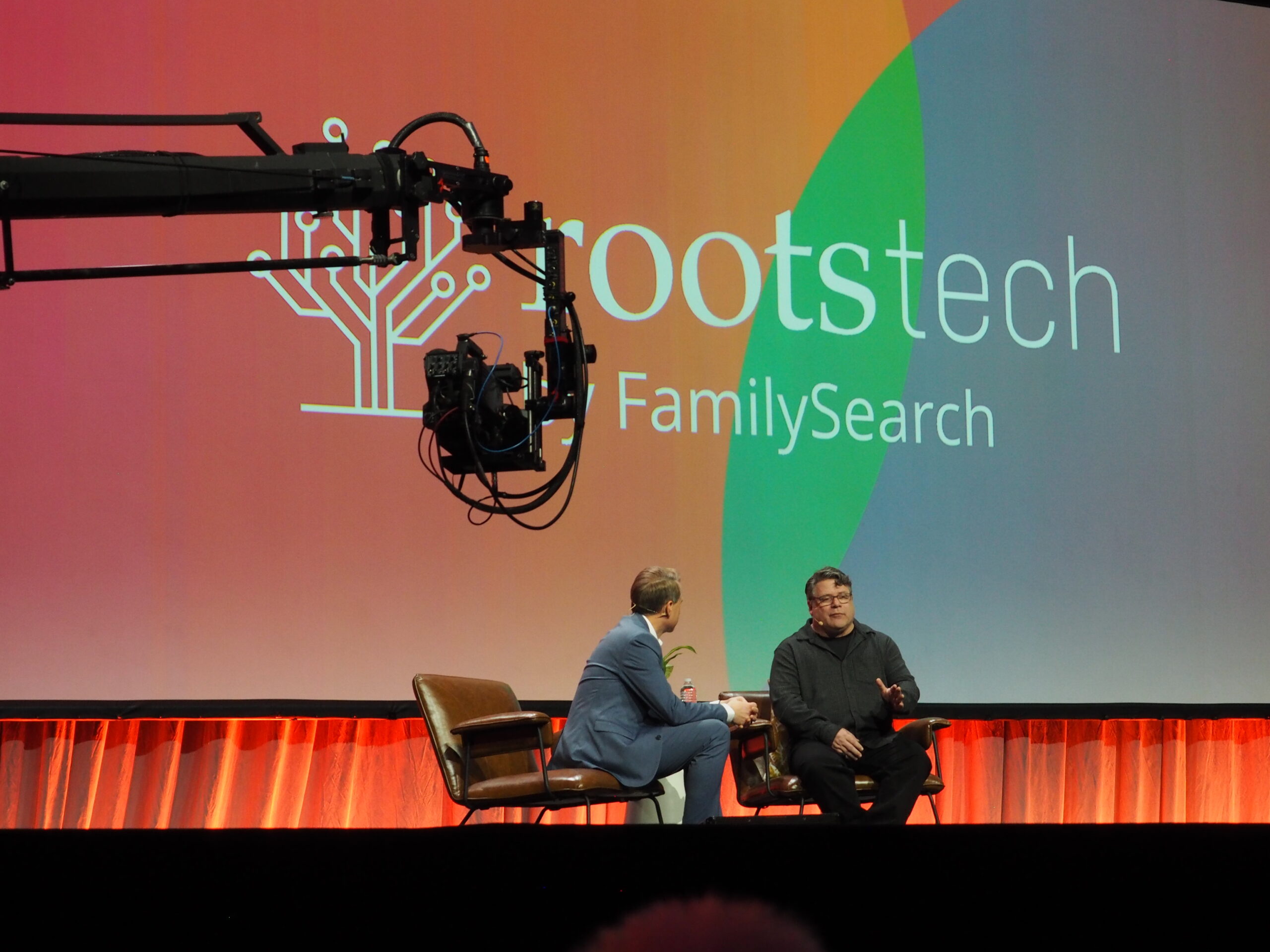
Registration was seamless and extremely efficient – no bags this year – but with registration cost down to around $100 + FREE virtual sessions, the bargain was significant! All of your favorite celebrity genies were there to deliver quality sessions and welcome everyone back to the genealogy event of the year!
Big announcements came from the major vendors, and Family Search – announcing so many tech tools and enhancements to the products. I could never list everything here – but do yourself a favor and virtually revisit the exhibitors/vendors from this year’s virtual and on-site events. It’s still the winter months, so it’s a great time to explore their sites more fully. Some of them are even still offering conference specials and discounts for their products – so, hurry up – time’s a wastin’!
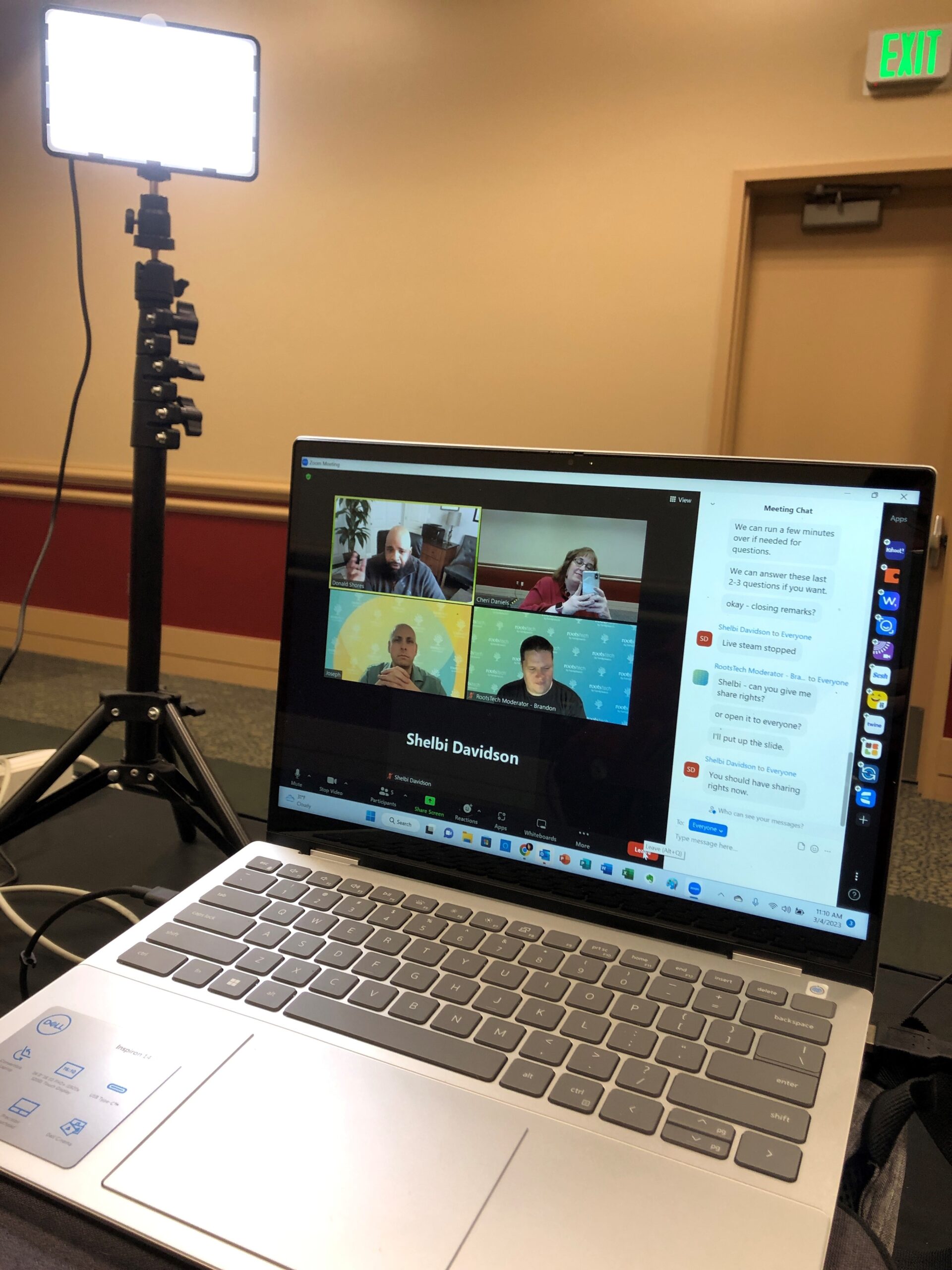 In my previous post, I announced that I had been selected to give 6 sessions this year – one was live streamed and can be watched here (Navigating Racial Challenges in DNA Matches, with Donald Shores) – but two of the sessions were hands-on workshops given at the Family Search Library (formerly known as the Family History Library) as a part of RootsTech – and co-sponsored by my employer, the National Society of the Sons of the American Revolution!
In my previous post, I announced that I had been selected to give 6 sessions this year – one was live streamed and can be watched here (Navigating Racial Challenges in DNA Matches, with Donald Shores) – but two of the sessions were hands-on workshops given at the Family Search Library (formerly known as the Family History Library) as a part of RootsTech – and co-sponsored by my employer, the National Society of the Sons of the American Revolution!
This workshop format was a new concept, and I was honored to be a part of the inaugural series launch in conjunction with the RootsTech offerings. These sessions were listed as a part of the on-site session list, but pre-registration was required since class size was limited to 50 each. The classes I gave on historic photography and preservation were full within a couple days of listing, and we even opened up for ten more people each class (which meant ordering more gloves prior to flying to SLC) – but of course, even that wasn’t enough, and we had more people wanting to squeeze in. The educational benefits of these classes included not only holding the various photographic formats in their hands – but all attendees went home with two pairs of gloves and a sampling of enclosures to get them started in preserving their own photographs at home.
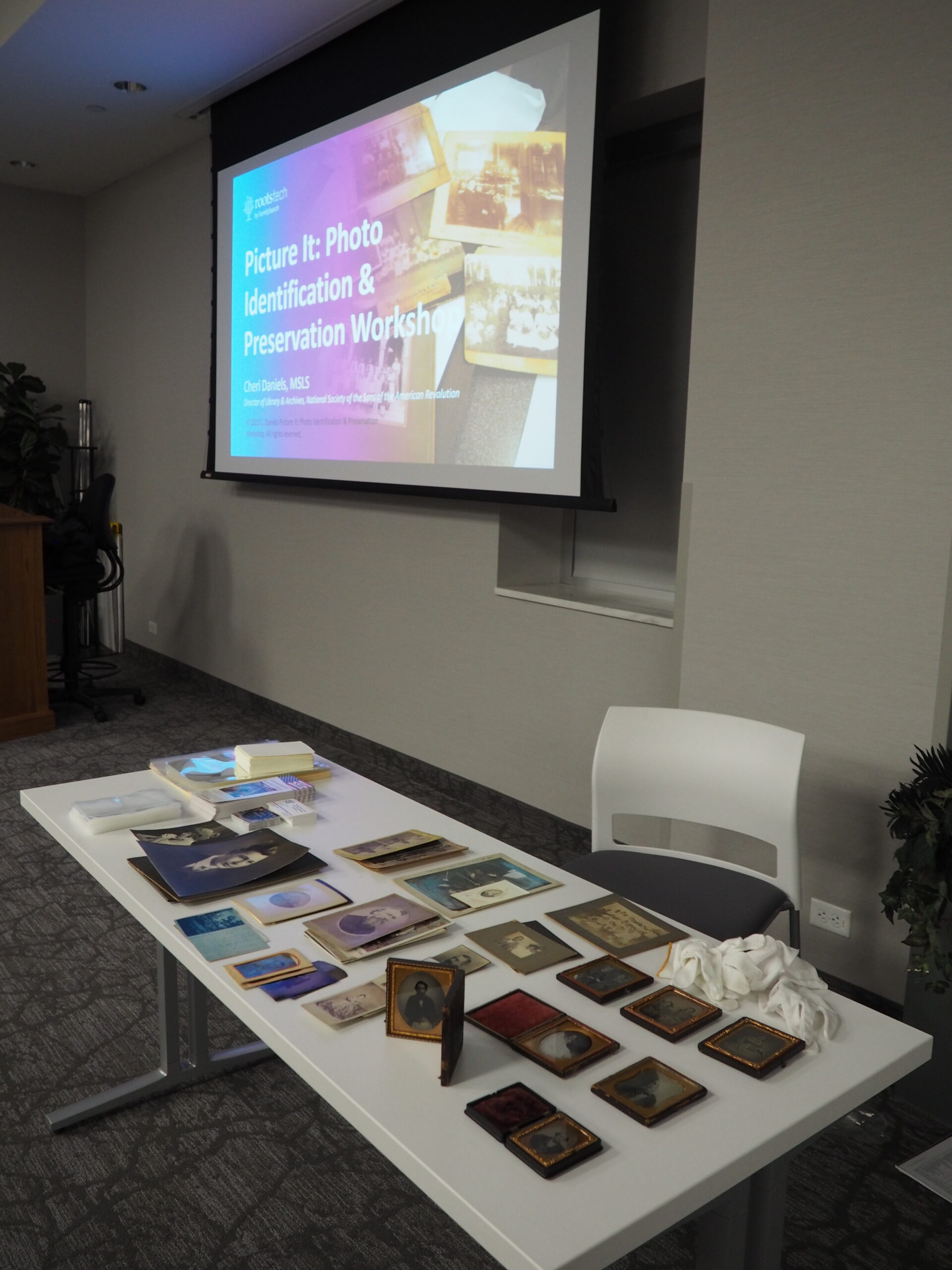
And lastly…the amazing keynote speakers provided incredible high points as usual. Most of these can still be viewed on the RootsTech main website. Of course, my favorite of Sean Astin! Getting to meet him in person was an experience I will never forget. “Goonies never say die!”
Here are my final thoughts:
- With so many sessions available for free on the RootsTech website (sessions from 2020-2023) – RootsTech is NEVER over! Invest in your own genealogy education and development by viewing these great sessions over the next year.
- Now that the inaugural post-Covid event is under our belt, you know this on-site event is going to continue to grow each year – so put this back on your genealogy bucket list. Every genealogist should attend at least once in their lifetime!
- Despite the large crowds, very few masks, and lots of hugs, conversations, and mass transit (planes, trains, & automobiles) – no one in my party came home sick – nor have I heard of any widespread illness during, nor upon our return. In 2020, it feels like we all got sick during or after. This is a wonderful sign about our (hopefully) post-Covid existence.
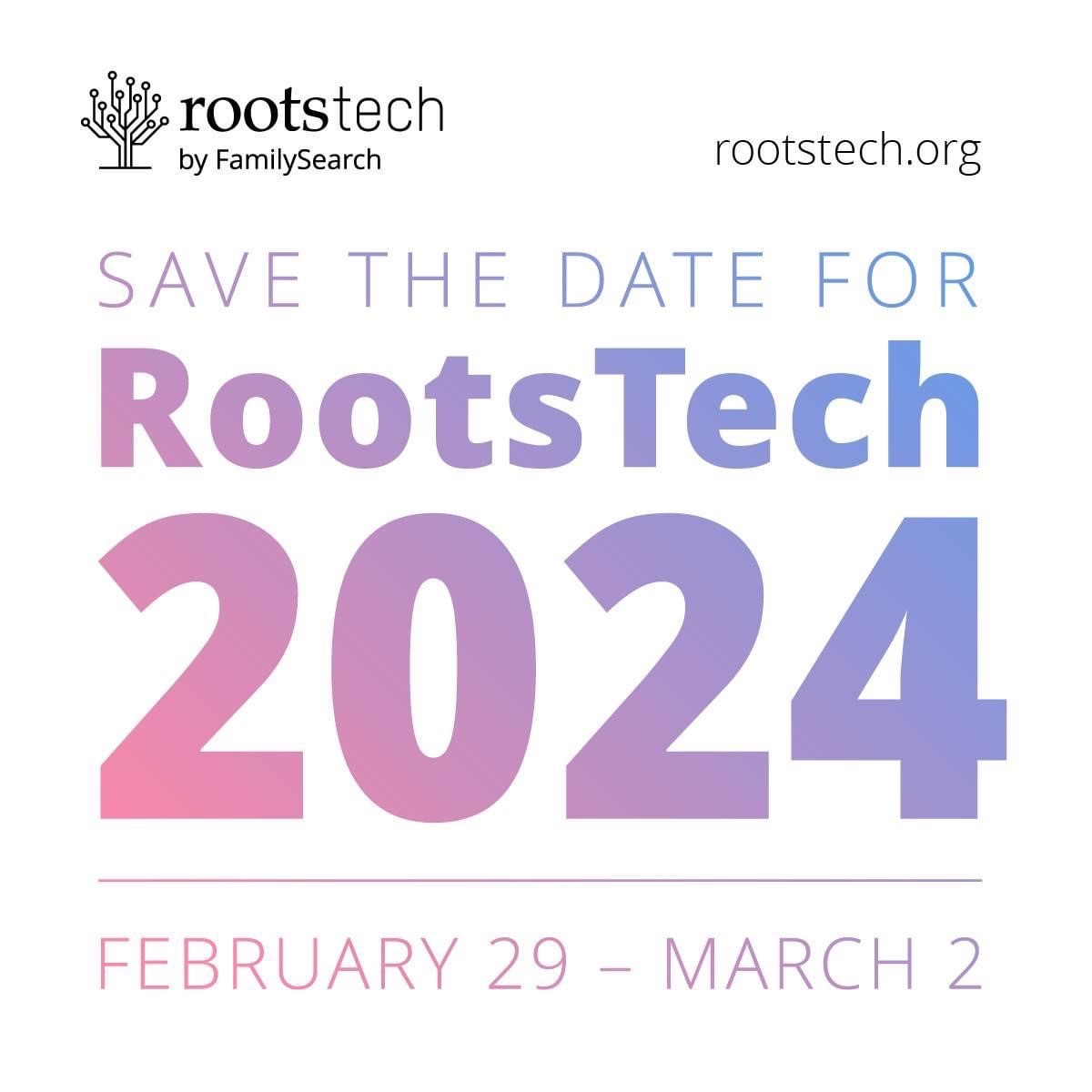 If you plan on coming out next year – the dates have already been set, and one word of planning caution – from what I observed – with both merchandise and the food set-up – this conference has moved to a cashless system.
If you plan on coming out next year – the dates have already been set, and one word of planning caution – from what I observed – with both merchandise and the food set-up – this conference has moved to a cashless system.- Be watching for a post-event podcast episode coming soon via BloodRoot as my RootsTech posse gathers once again to chat about our 2023 experience!
- If you are in the Louisville/Kentuckiana region – be on the lookout for the Picture It! Workshops to be given again this summer at the NSSAR headquarters. Keep an eye on the events page of library.sar.org for coming announcements.
Thanks to all who attended my sessions and have reached out since – y’all make the work so worth while!
Wishing everyone a safe 2023, and – hopefully – look forward to seeing even more of you in SLC in 2024!

RootsTech 2023 Sneak Peek & Giveaway
Greetings, one and all! It’s that time of year, again – RootsTech season! The world’s largest family history conference is back this March 2-4, and I’m hoping most of you have already heard about the dual nature of this year’s conference: Approx. 180+ classes in person at the Salt Palace in Salt Lake City with a similar number of (different) virtual classes available for FREE, online! Just to be clear, both of these options contain NEW classes – and are different from the thousands of on-demand classes that are currently available at the RootsTech website from the past couple of years. CLICK HERE to go directly to the 2023 session/speaker/exhibitor listings.
Which also means there are two ways to register – in-person – or virtually. The virtual option is FREE for all – but pre-registration is required for either choice.
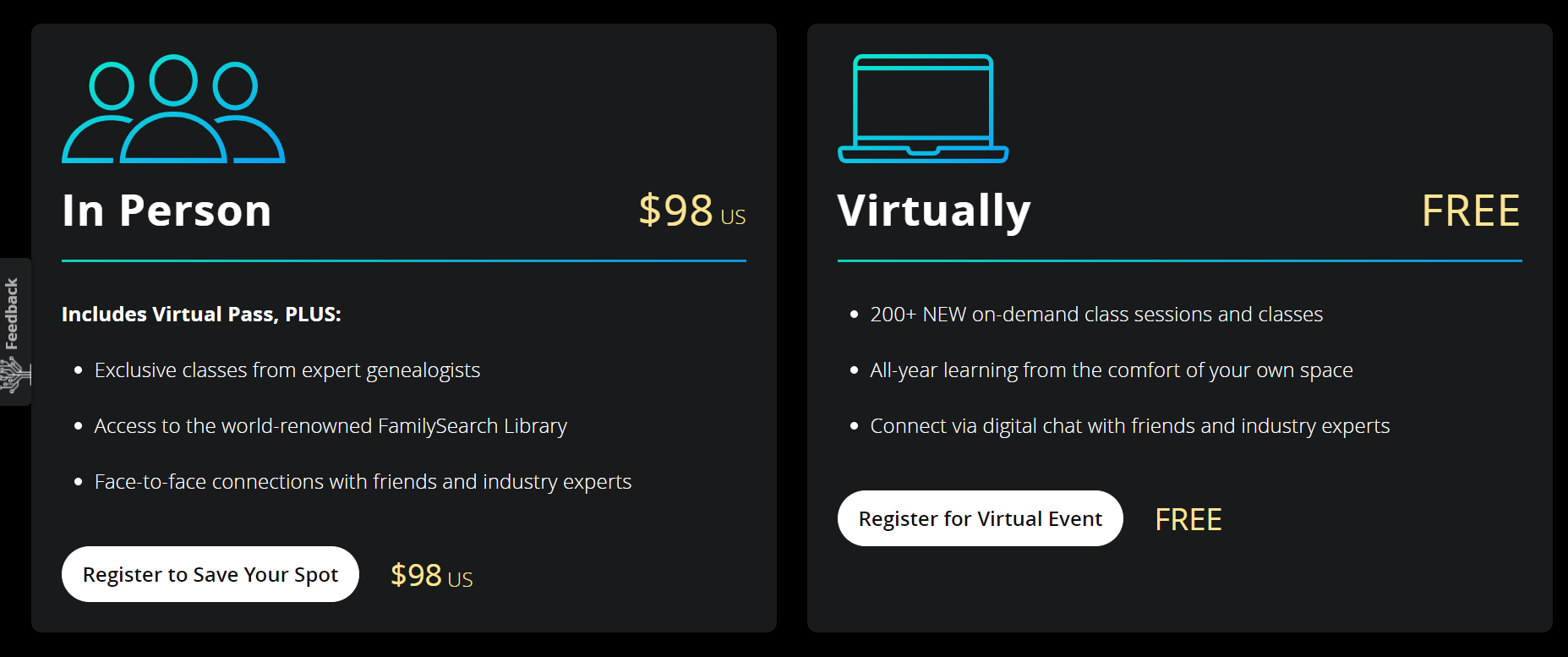
If you will be in the SLC area, and would like a chance to attend the conference for free, scroll down to the giveaway section!
What’s new this year:
For RootsTech 2023, the theme is Uniting – and we can’t wait to unite once again with our fellow genealogists, family historians, colleagues, vendors, friends, etc. Some really great keynote speakers are being announced as we get closer to the conference, so keep an eye out for additional announcements as March approaches.

I too have a new slate of sessions to present, both on-site and online for this year’s conference:
- Picture It: Photo Identification and Preservation Workshop @ the FS Library, Thursday, March 2 • 8:00 AM – 10:30 AM
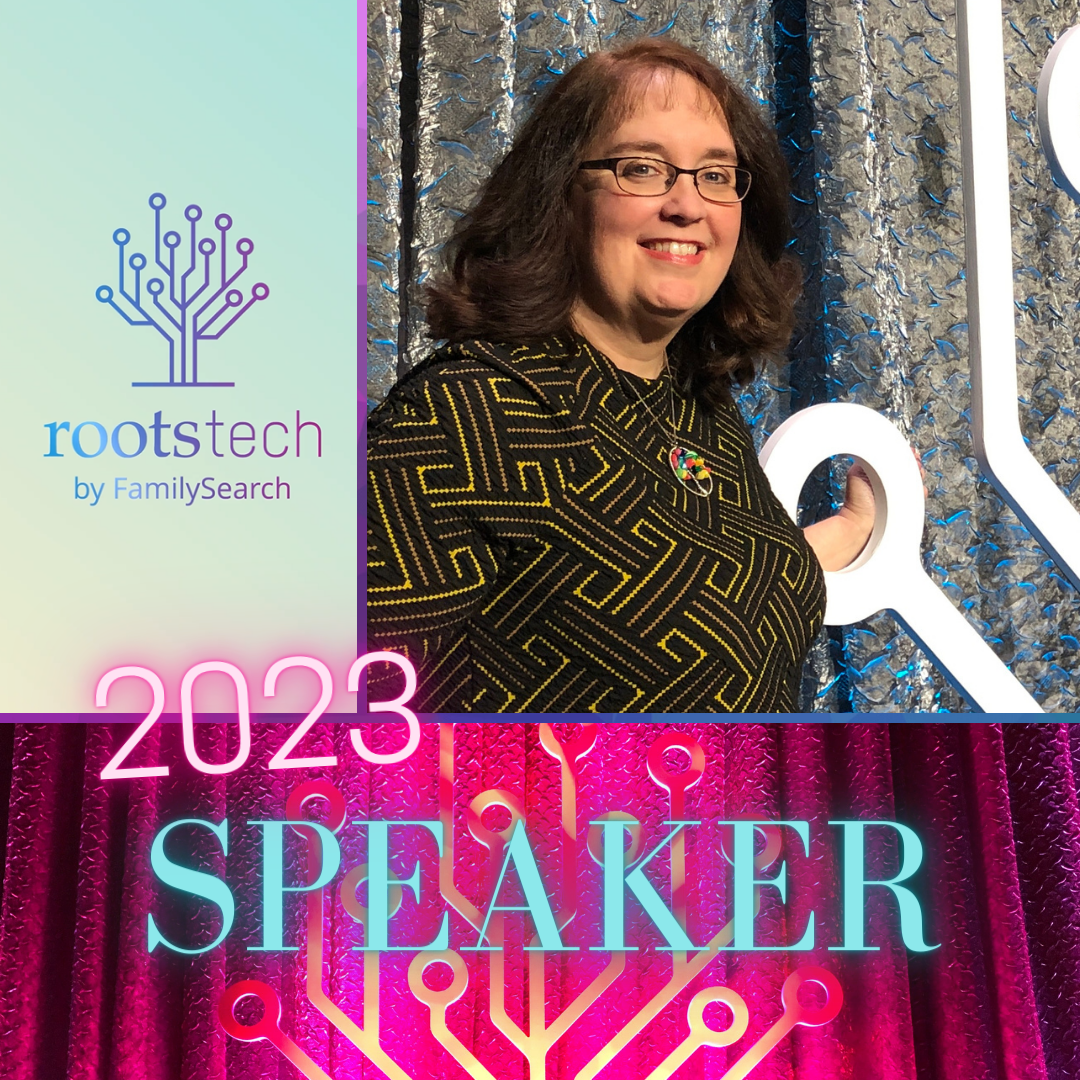 Picture It: Photo Identification and Preservation Workshop @ the FS Library, Friday, March 3 • 8:00 AM – 10:30 AM
Picture It: Photo Identification and Preservation Workshop @ the FS Library, Friday, March 3 • 8:00 AM – 10:30 AM- Listen Up! Podcasting Your Family History, Friday, March 3 • 1:30 PM – 2:30 PM
- FAN of the Enslaved: A Forensic Look at Two Family’s Journeys to Freedom, Friday, March 3 • 4:30 PM – 5:30 PM
- Navigating Racial Challenges in DNA Connections, Saturday, March 4 • 8:00 AM – 9:00 AM (Livestream – Online/Virtual)
- Avoiding Ancestor Identity Theft: How to Add the Right People to Your Tree, Saturday, March 4 • 3:00 PM – 4:00 PM
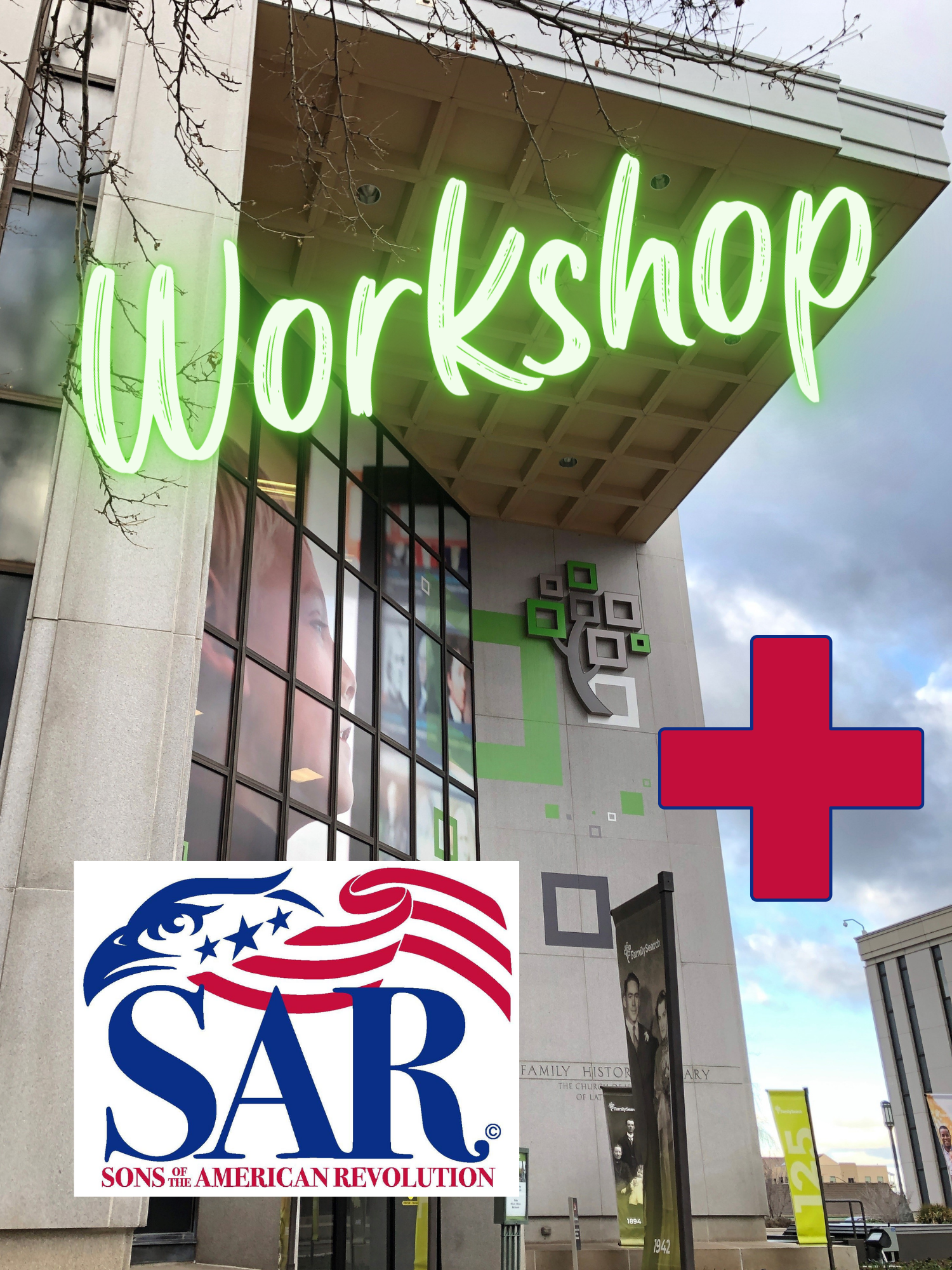 BTW, if you caught that one of my sessions has a seemingly duplicate entry – that’s because I am giving this very special workshop twice at the Family Search Library (formerly the FHL)! This 2 hour hands-on workshop is co-sponsored by the the FSL and the SAR Genealogical Research Library!
BTW, if you caught that one of my sessions has a seemingly duplicate entry – that’s because I am giving this very special workshop twice at the Family Search Library (formerly the FHL)! This 2 hour hands-on workshop is co-sponsored by the the FSL and the SAR Genealogical Research Library!
Here is a description of the Picture It workshops: Have you ever wanted to fully understand the difference between daguerreotypes, ambrotypes, tintypes, and more? This intensive two hour workshop will take a deep dive into the various historic photograph formats that we encounter as family historians – followed by instructions on how to properly handle and preserve them based on format and access needs. Attendees will get a hands on experience as they receive their own pair of gloves to keep as each type of photograph is passed around the room. We will closely examine what each format looks like and feels like in person, sometimes using magnifying glasses to see the processing elements that signal type and production markers. During the preservation phase of the class, attendees will be introduced to the various types of enclosures and tools necessary to preserve their collection. At the end of the class, each attendee will also receive a few enclosure samples to take home. Free class, sponsored by the Family History Library and the Sons of the American Revolution (SAR) Genealogical Research Library. Class limited to 40 attendees.
These off-site workshops held at the FSL is a new concept for RootsTech – so pay close attention to the session descriptions to find additional off-site workshops! And just a reminder that these two workshops are limited to 40 attendees each. Once you register for the conference, you will be able to add them to your schedule which should create a count for those keeping track.
Also new for this year – some special guests joining a couple of my sessions! For Navigating Racial Challenges in DNA Connections – I’ll be joined by genealogist, Donald Shores – who will be participating virtually, all the way from Missouri. And for Avoiding Ancestor Identity Theft: How to Add the Right People to Your Tree – I’ll have two special colleagues partnering in the presentation – Linda Colston, genealogist at Twin Oaks Genealogy, and Deborah Maddox, Staff Genealogist at the SAR.
We are all so excited to get back together in person – but equally as happy to know that the virtual RootsTech party is still going strong! And don’t forget all of those on-demand sessions still available at the RootsTech site right now!
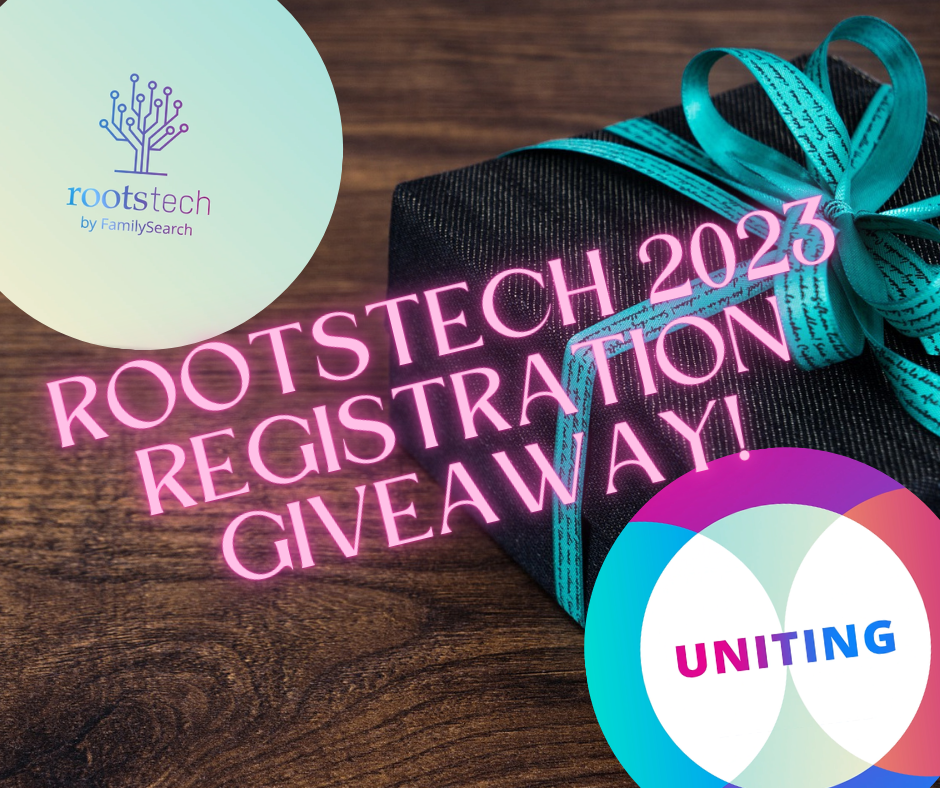 Now for the Giveaway!
Now for the Giveaway!
As a RootsTech influencer, I am tasked with giving away one free on-site registration to the 2023 conference – a $98 value*! This includes full access to all three days of the conference – featuring 180+ sessions, expo hall, keynote sessions, and main stage fun! You must enter by January 30th – and the winner will be announced on January 31st.
Here’s how to enter – just comment below to give me the name of your favorite ancestor. You may also comment on my Twitter or Instagram posts if you prefer. Only one entry per person, please.
Now – what are you waiting for?
*Note: This contest for on-site registration only and does not include any travel monies for arrival/attendance. The virtual conference is free for all.

Major Plot Twist
In looking at 2022 so far, I have to ask myself – How did I get here? The first half of 2022 has been quite the ride, which explains my hiatus on this site and the podcast. The year started out with a week of Covid – yay, holidays – followed by a flurry of major events: RootsTech, the 1950 Census release, filming season 2 of Kentucky Ancestors TV, and finally a position change that took me to an entirely different city. If you are chomping at the bit to learn more about said change in position (and haven’t figured it out by the logo), scroll to the bottom of this post.
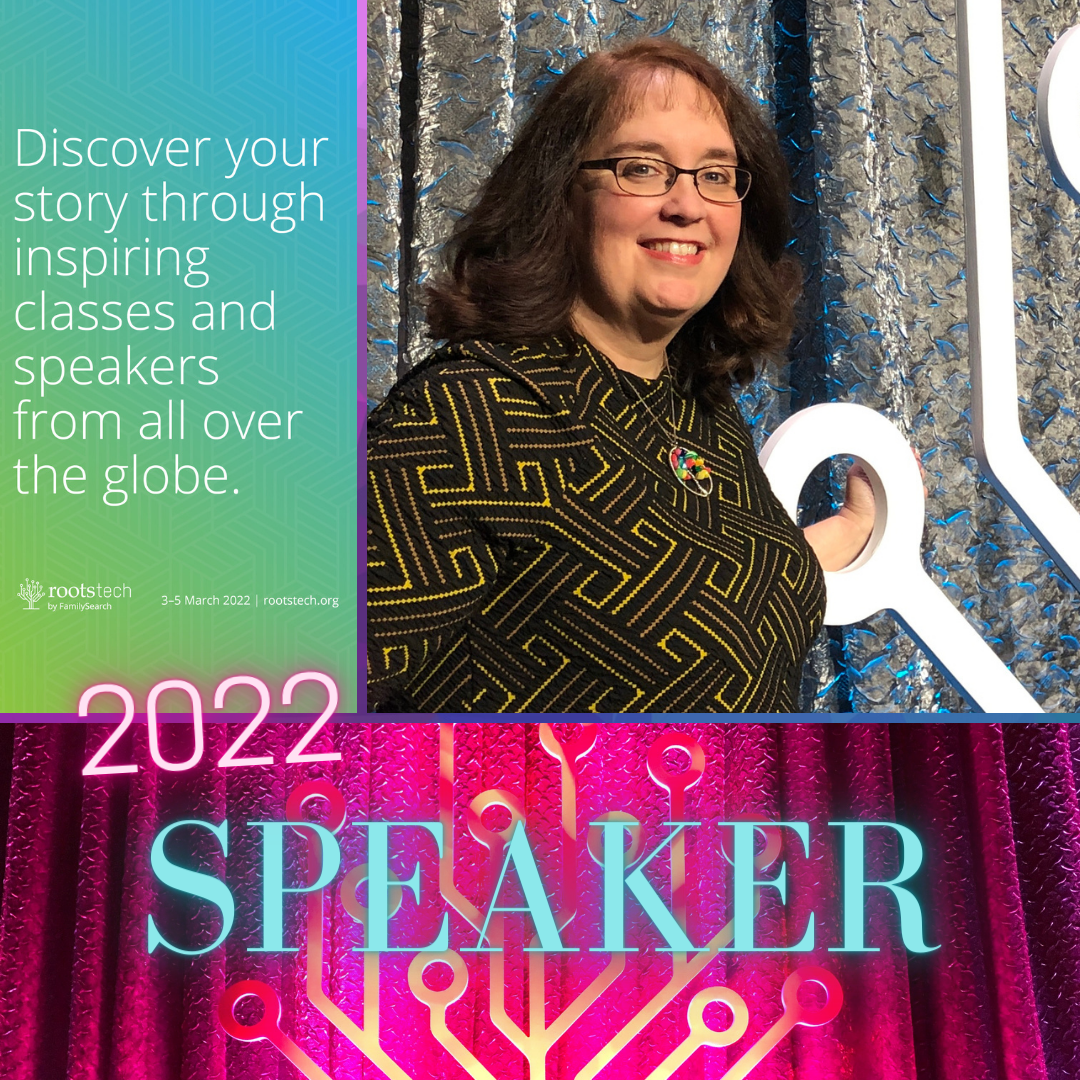 RootsTech 2022: This year’s RootsTech was much like 2021 – videos submitted – to be posted to my profile of available videos. I was delighted recently to see that they have added my in-person session from 2020: Tackling Difficult Chapters of Your Family History. Meaning, if you visit my RootsTech speaker profile page, there are now 7 videos to choose from! BTW, the plans for RootsTech 2023 were recently announced – giving us the happy news that the event will be a hybrid – some classes in-person at SLC, and many available via video. So get ready to enjoy to another stellar year – in the Salt Palace, or from the comfort of your own home! More to come on this subject as we get closer to the event. And just for a tease – I just received word that you’ll officially see me there in person and via video. Time to make some plans!
RootsTech 2022: This year’s RootsTech was much like 2021 – videos submitted – to be posted to my profile of available videos. I was delighted recently to see that they have added my in-person session from 2020: Tackling Difficult Chapters of Your Family History. Meaning, if you visit my RootsTech speaker profile page, there are now 7 videos to choose from! BTW, the plans for RootsTech 2023 were recently announced – giving us the happy news that the event will be a hybrid – some classes in-person at SLC, and many available via video. So get ready to enjoy to another stellar year – in the Salt Palace, or from the comfort of your own home! More to come on this subject as we get closer to the event. And just for a tease – I just received word that you’ll officially see me there in person and via video. Time to make some plans!
1950 Census: Because of the timing with filming Season 2 of KA, I just never got to enjoy the hype behind the 1950 Census. I did get into the various platforms to find some of my people, but from that weekend on, my plot twist was also in full swing. I was sorry to miss a lot of the fun since the 1940 Census was a rip-roaring good time, but as you read on, I’m sure you’ll understand. Besides, the day of its release coincided with my final plot twist on the list!
Kentucky Ancestors TV Show – Season 2: Preparation for filming Season 2 of this award-winning statewide TV show was my entire existence for many, many months. And just to put this in perspective – filming took place on the same weekend as RootsTech! Crazy times! I have to say, as a Producer on the show, I was particularly proud of the episodes we put together for this season. We had a new host, former Miss America and 2nd Lady of Kentucky, Heather French Henry. We of course greatly missed Season 1’s Renee Shaw, but due to contractual obligations, she was not available for Season 2.

All I can say about Kentucky Ancestors TV is that I was extremely sorry to say goodbye. This had been my baby since 2016 – a very intense labor of love. And while I was willing to stay on to produce content for future seasons, they decided to move in a different direction. However, the memories I will take with me as my one shot as a Producer will be cherished forever! So many people made this happen, but I’d particularly like to thank my Co-Producer, Greg Hardison, and my Genealogy research partner in crime, Linda Colston. Without these two, there wouldn’t be a show. And finally, a big shout out to the KHS Foundation and its Executive Director, Doug High, who provided funding, Studio 46, production advice, and the air time necessary to take this show across the state. Again, so many people to thank – most are in the episode credits – so be sure to tune in to support this amazing genealogy show.
BTW, if you’d like to catch this season’s episodes – be watching local Kentucky and Cincinnati stations through August, or wait for the release of each episode at the end of the month on their YouTube channel.
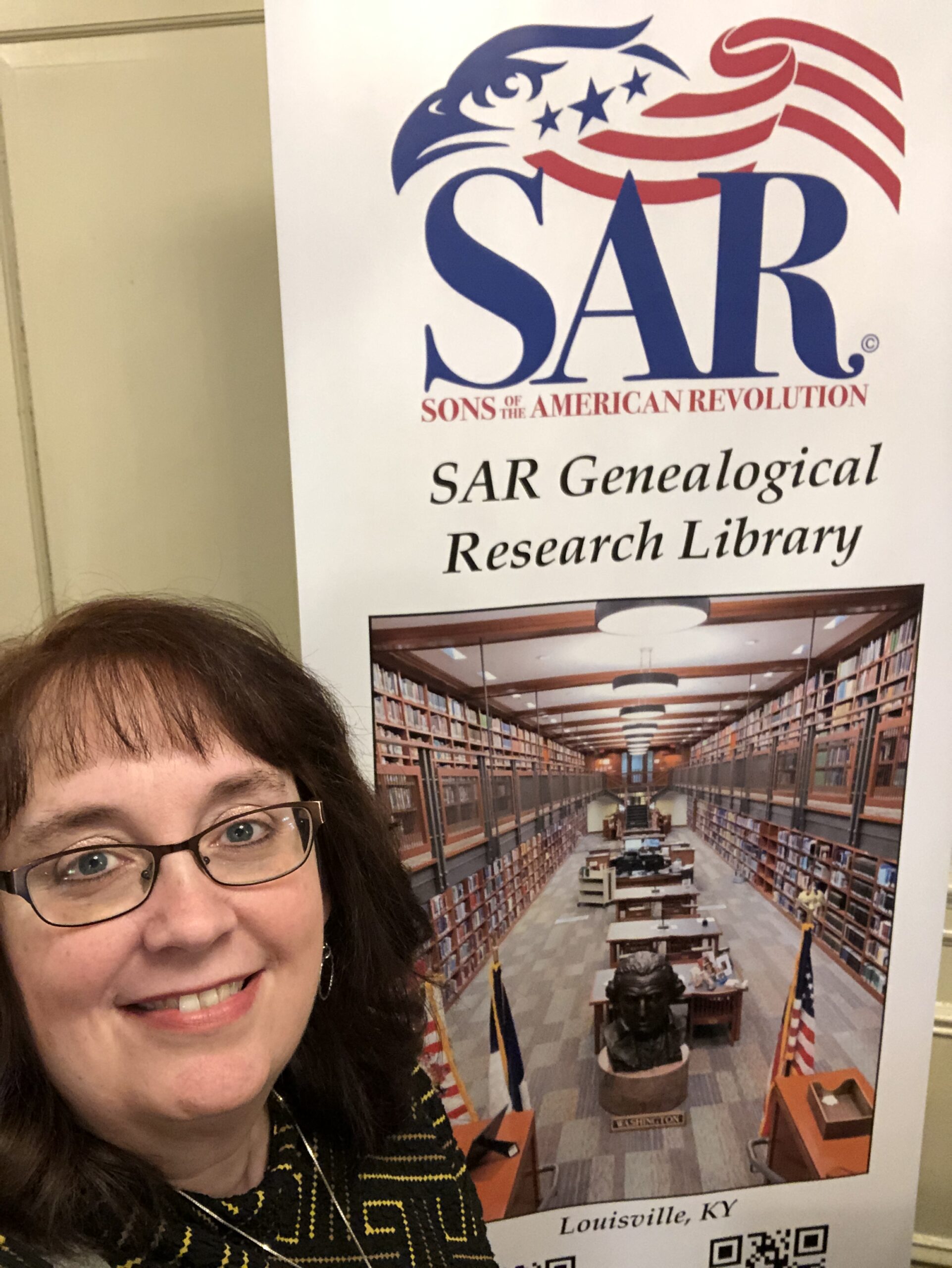 The Final Plot Twist: As I mentioned earlier – these previous events were then overshadowed by the biggest plot twist of all: After 10 years at the Kentucky Historical Society, I left to join the National Society of the Sons of the American Revolution Headquarters as their new Library Director! This was a huge honor and for the past several months, I have been settling in and planning future programs, etc. And of course, when was my first day on the job for the SAR? April 1st – the same day as the release of the 1950 Census! Plus, as we were filming Season 2, we were all a bit sad as everyone knew I was leaving a month after filming.
The Final Plot Twist: As I mentioned earlier – these previous events were then overshadowed by the biggest plot twist of all: After 10 years at the Kentucky Historical Society, I left to join the National Society of the Sons of the American Revolution Headquarters as their new Library Director! This was a huge honor and for the past several months, I have been settling in and planning future programs, etc. And of course, when was my first day on the job for the SAR? April 1st – the same day as the release of the 1950 Census! Plus, as we were filming Season 2, we were all a bit sad as everyone knew I was leaving a month after filming.
So, what could lure me away from a place I loved? The place I firmly believed was my dream job? Well, another dream job came knocking. The SAR Genealogical Research Library in downtown Louisville Kentucky is the national library for the SAR. That’s right, NOT in Washington D.C., but right in my backyard, here in Kentucky! They’ve been here for decades, and in their current location for about 12 years.
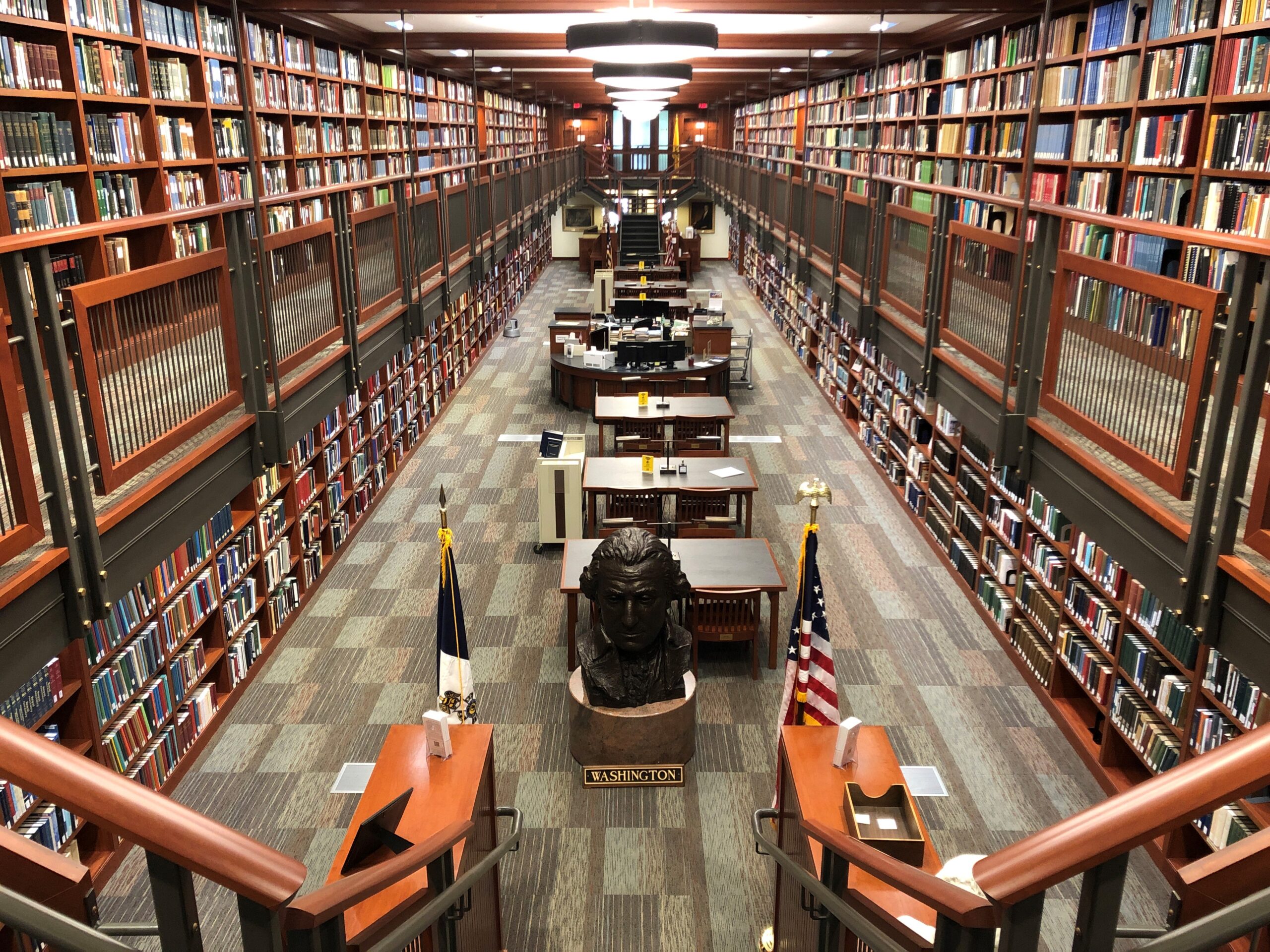
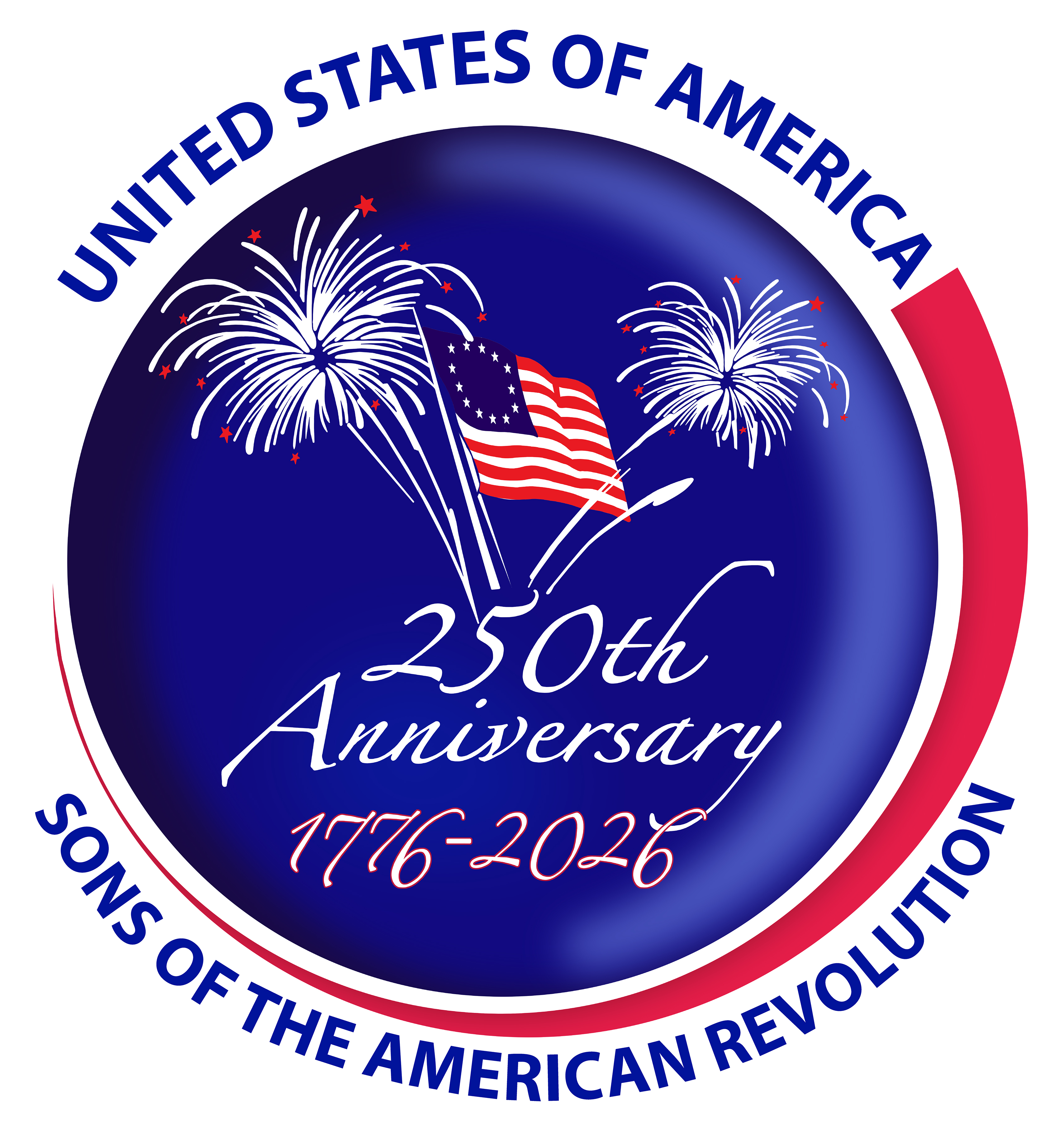 With an amazing national collection, I can’t wait to share more with you all over the coming months. Just a reminder that the 250th Anniversary of America’s birth is coming in the next 4 years, so the programming will build at a very fast pace. We are busy developing a new library webpage portal for continued content, events, and resources for researching your American Revolution era ancestors. While we wait for this aspect to go live, please be sure to join our Facebook page, and like us on Twitter. Both of those places will announce future content and programs as they become available. If you’re ever in the Louisville area, please stop in to see us (right across the street from the Louisville Slugger Museum) – research is $5 per day OR FREE for SAR members and their spouses, DAR/CAR/SR members – but if you don’t fit into any of those groups – please consider joining our Friends of the Library program – for $25 per year, you support our mission and receive free admission all year long! Plus, you get beautiful little pin to showcase on your favorite genealogy/research garb!
With an amazing national collection, I can’t wait to share more with you all over the coming months. Just a reminder that the 250th Anniversary of America’s birth is coming in the next 4 years, so the programming will build at a very fast pace. We are busy developing a new library webpage portal for continued content, events, and resources for researching your American Revolution era ancestors. While we wait for this aspect to go live, please be sure to join our Facebook page, and like us on Twitter. Both of those places will announce future content and programs as they become available. If you’re ever in the Louisville area, please stop in to see us (right across the street from the Louisville Slugger Museum) – research is $5 per day OR FREE for SAR members and their spouses, DAR/CAR/SR members – but if you don’t fit into any of those groups – please consider joining our Friends of the Library program – for $25 per year, you support our mission and receive free admission all year long! Plus, you get beautiful little pin to showcase on your favorite genealogy/research garb!
So, that’s it in a nutshell, folks – a wild and crazy year – and it’s only half over! BTW, as a PS – another reason the podcast has went begging – just after I started with the SAR, I came down with a nasty head cold that went into really bad laryngitis – I only recently got my voice back to full strength. Be watching for new episodes of BloodRoot coming very soon!

RootsTech 2022 Is Coming: Global Keynotes and Speakers!
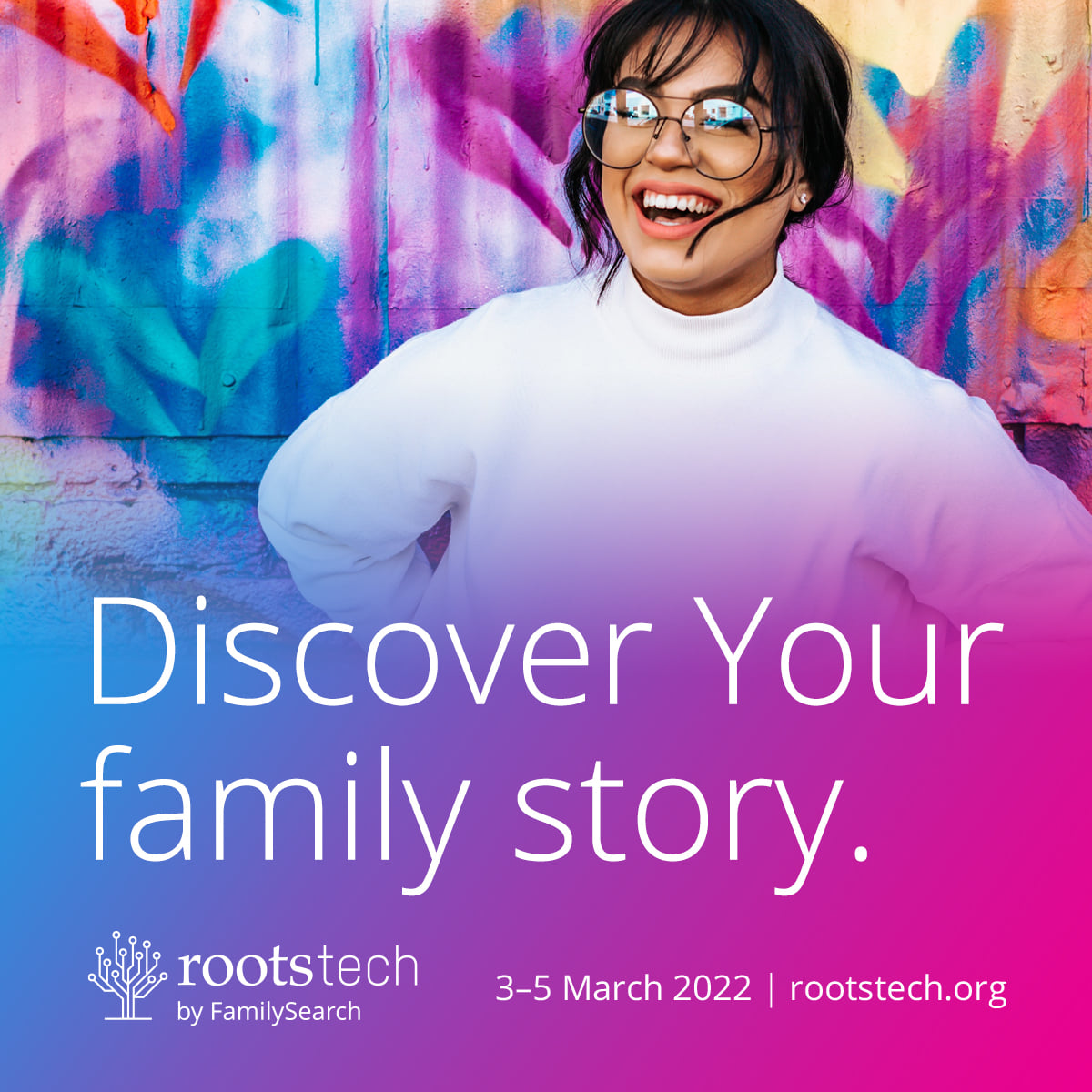 Calling all family historians and genealogists:
Calling all family historians and genealogists:
Did you hear that RootsTech – the world’s largest family history conference and year-long learning platform is going virtual and FREE once again for 2022?! That’s right, the team at RootsTech is doing it all over again, promising an even richer buffet of genealogy goodness! This year’s virtual event takes place March 3rd through the 5th and registration is now open – just visit RootsTech.org.
With thousands of classes, inspiring speakers, meaningful activities and joyful connections, RootsTech brings the human family together like no other event. Get ready to celebrate shared connections with people from around the world. Connect with friends, your family, your past, your heritage and homelands—all from the comfort of your home and in your browser.
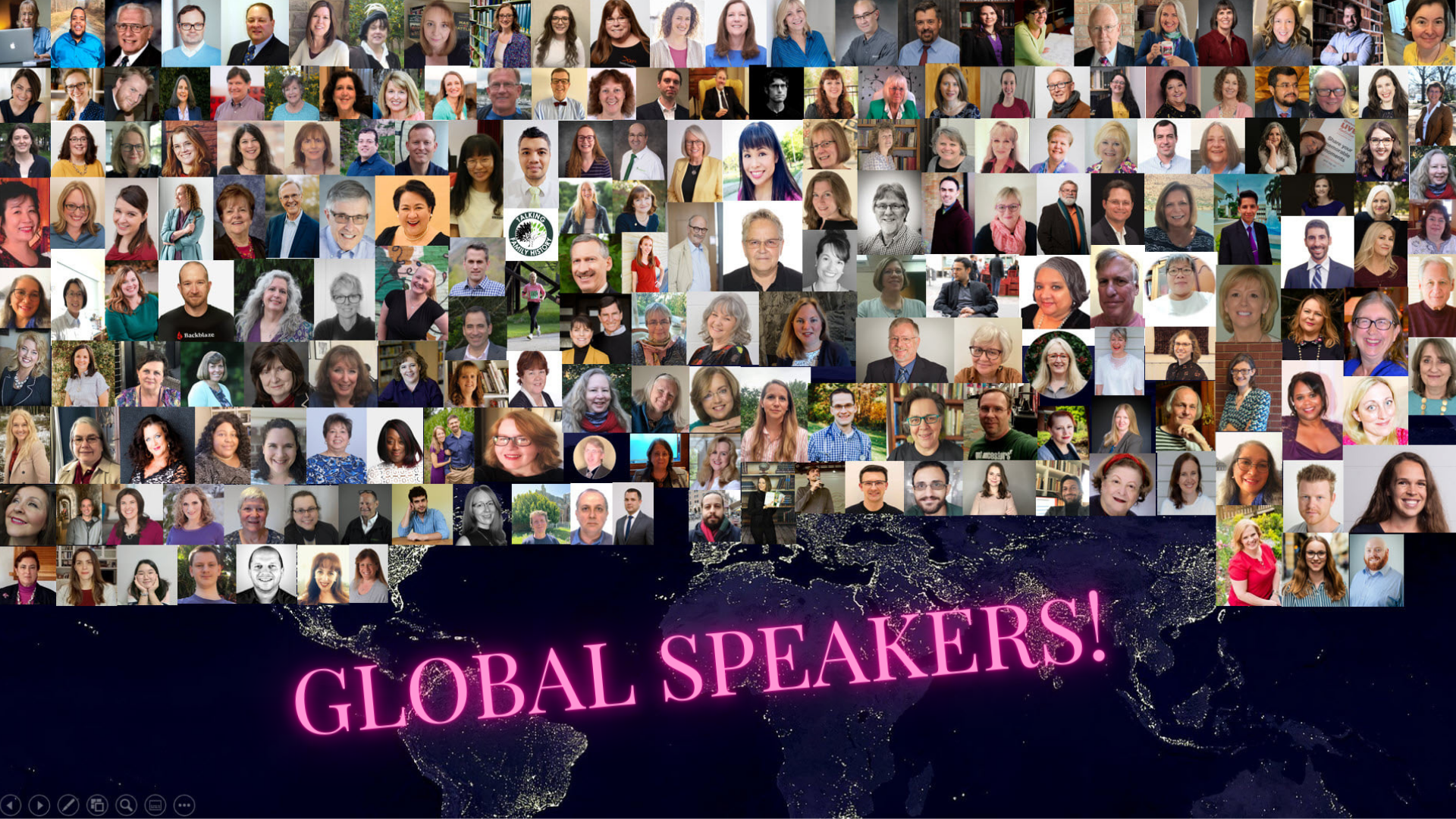
As an online experience, attendees will be able to choose from thousands of classes from around the globe and in multiple languages. Gee, that sounds like a lot of classes to take in during a three day window! Well, have no fear, there is NO schedule for the regular sessions – these have all been pre-recorded and placed online for you to consume at your leisure. Think GenFlix for us genealogy junkies! After the conference is over, you will have access to the full selection of sessions for the rest of the year, plus many from 2021.
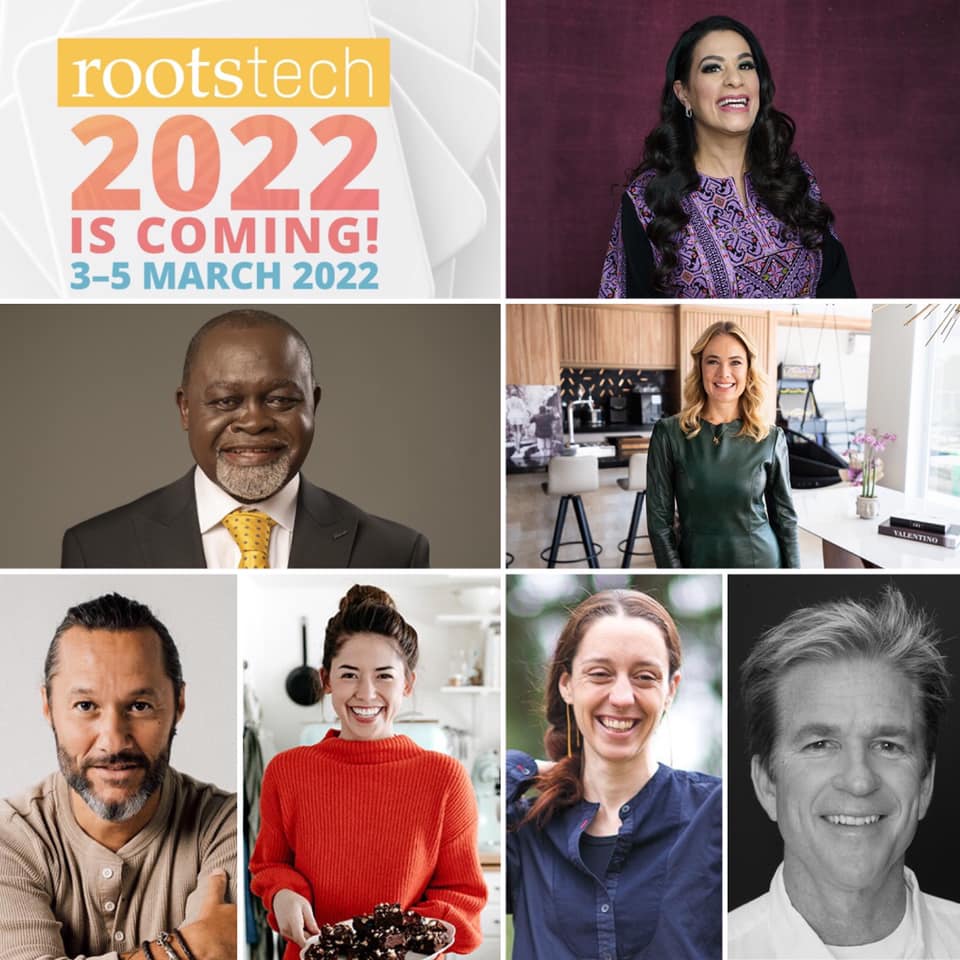
Beyond these dynamic classes, there will be inspirational keynote speakers, cultural activities, contests, virtual meet-ups, and a virtual marketplace. The keynote sessions ARE scheduled, for the main page – but if you miss one, they are recorded for you to enjoy later. For 2022, you will hear inspiring stories from: Matthew Modine, Thais Pacholek, Molly Yeh, Azumah Nelson, Diego Torres, Maysoon Zayid, and Apollonia Poilâne ! This is such an exciting lineup – and all for free – astounding!
“See” you There!
 Oh, and one last thing, I’ll be seeing you there as a speaker and influencer, so I apologize in advance that my social media feeds will be taken over during the conference. For more information about my speaking sessions, just search for my name once the conference goes live on the 3rd, or see my Speaking page at genealogyliteracy.com/services.
Oh, and one last thing, I’ll be seeing you there as a speaker and influencer, so I apologize in advance that my social media feeds will be taken over during the conference. For more information about my speaking sessions, just search for my name once the conference goes live on the 3rd, or see my Speaking page at genealogyliteracy.com/services.
For the best conference experience, consider signing up for a free familysearch.org account before heading over to the registration portal. What are you waiting for? Sign up now and let’s get connecting!
BTW, Special thanks to fellow speaker, Dr. Penny Walters for the great keynote graphic!

Find a Grave Update
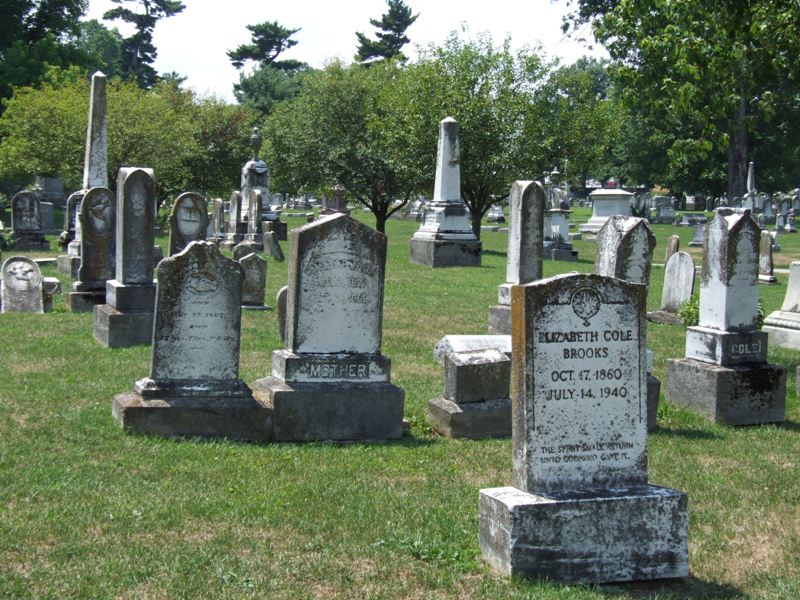 As many of you know, Episode 7 of the BloodRoot Podcast featured the website Find a Grave, and a couple of its lingering issues. Namely, the site design flaw that allows people to add the recently deceased to the database regardless of connection to the family. Since its creation, Find a Grave members have been able to add entries for the recently deceased even when no familial connection existed. When these instances happened, family members were faced with another level of emotional trauma on top of their current grief. They were then forced to request the management of their loved one’s entry from a stranger, and hope that the request was honored. Last fall, Episode 7 featured guest genealogist, Daniel Loftus, as he shared his efforts to urge Find a Grave to finally make a change in this area. A change that many voices had asked for over the years.
As many of you know, Episode 7 of the BloodRoot Podcast featured the website Find a Grave, and a couple of its lingering issues. Namely, the site design flaw that allows people to add the recently deceased to the database regardless of connection to the family. Since its creation, Find a Grave members have been able to add entries for the recently deceased even when no familial connection existed. When these instances happened, family members were faced with another level of emotional trauma on top of their current grief. They were then forced to request the management of their loved one’s entry from a stranger, and hope that the request was honored. Last fall, Episode 7 featured guest genealogist, Daniel Loftus, as he shared his efforts to urge Find a Grave to finally make a change in this area. A change that many voices had asked for over the years.
As a follow-up: I am happy to report that this January, Find a Grave announced new changes to rectify this situation. Within the first year after a death, anyone can add the memorial, but those who are related to the deceased will have a much easier management shift if they so desire – at least for 3 months. Within that first three months, a relative can request the management change without asking for permission. If they would like a memorial transferred to them after the three month mark, the request for management process remains the same as it has been all these years. For more information about all of these changes in detail, their official notice is linked below. Again, special thanks to Daniel Loftus, our guest from Episode 7 who had fanned the flames of change, and became one of the loud voices that garnered results. Well done!
As for the Find a Grave acronym issue also covered in Episode 7, we have not heard any news in this area. However, there have been a few waves of social media grumbles urging long overdue changes. To reiterate my stance, I am not in favor of a full name change, but I believe Find a Grave can easily act responsibly and redesign a logo that includes their official initials as FG. They also need to take the lead and refer to themselves in any acronym usage as FG. Over time, this would clearly catch on with users and resolve the issue. I fear that if they do not listen to this advice, the outcry for outright name change may become deafening. Again, when faced with the choice, choose kindness.
If you’d like to listen to Episode 7 to learn more about Daniel’s story and his work with Find a Grave, just click the episode link below, or look for the BloodRoot Podcast via your favorite listening platforms.
RootsTech Connect is Here!
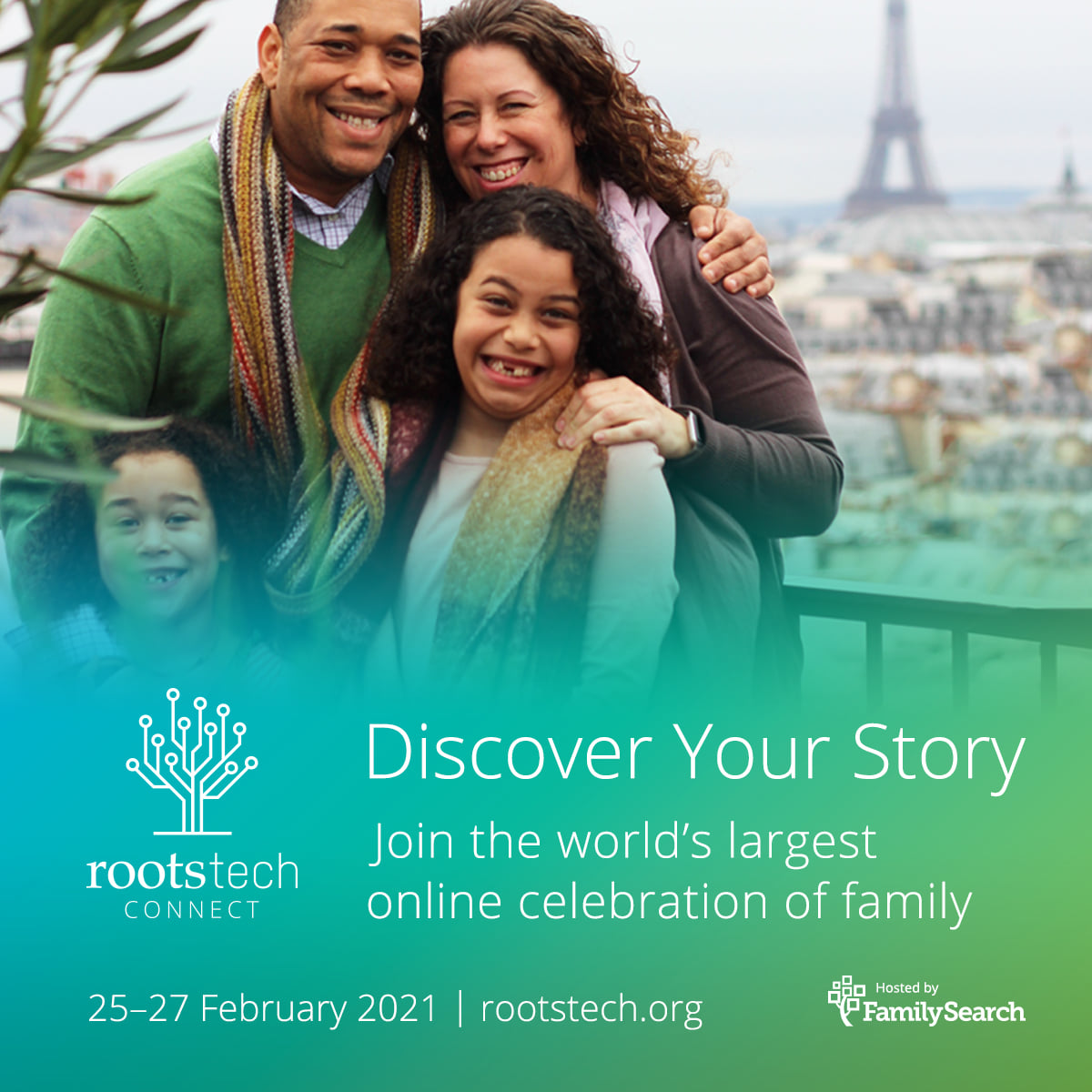 As most of you know, the RootsTech Conference has been transformed into a FREE virtual world-wide event for 2021 – Called RootsTech Connect! This new experience just went live today, so, what can you expect? Many of the same exciting elements we are used to during the on-site event, such as great sessions, inspiring keynote speakers, an expo hall, and making connections with your fellow attendees. It’s just a remote experience, with the world audience in mind – speakers from many countries with sessions in many languages! And while we will most definitely miss the hugs, library research, vendor talks, catching up, and great food, this is the next best thing.
As most of you know, the RootsTech Conference has been transformed into a FREE virtual world-wide event for 2021 – Called RootsTech Connect! This new experience just went live today, so, what can you expect? Many of the same exciting elements we are used to during the on-site event, such as great sessions, inspiring keynote speakers, an expo hall, and making connections with your fellow attendees. It’s just a remote experience, with the world audience in mind – speakers from many countries with sessions in many languages! And while we will most definitely miss the hugs, library research, vendor talks, catching up, and great food, this is the next best thing.
Here are a few things to note:
As of the conference launch, there have been over 500,000 registrations from around the world!
But if you did not register – have no fear – you can still experience the full conference even without registering! Simply head over to the main website and enjoy the many videos at your fingertips. If you would like to develop your own playlist for the coming year, and communicate with speakers, friends, and vendors, just create a free FamilySearch.org account to connect you to the fun!
Also, there is NO schedule for the regular sessions – these have all been pre-recorded and placed online for you to consume at your leisure. Think GenFlix for us genealogy junkies! The keynote sessions are scheduled, there on the main page – but if you miss one, they are recorded for you to enjoy later.
While you’re enjoying this new experience, please stop in to view the four sessions I have in the video docket:
471123 – Beyond the FAN Approach: Inclusive Research Strategies
471127 – Airtable: Organizing Your Research with a Relational Database
471179 – Practical Preservation Demonstration
471215 – Successful Remote Research Strategies
Officials have reported that 80% of those registered are first time RootsTech attendees. For those new to the RootsTech experience – or for those missing the in-person fun, I have a created a special episode of the BloodRoot podcast devoted to RootsTech Connect! I’ve had a few friends drop by to share their favorite memories from the past, and tell us what excites them about this new format for 2021. (Linda Colston, Cynthia Maharrey, Miles Meyer, Tami Osmer Mize, Elizabeth O’Neal)
But first things first: For the next three days, you should focus your attentions on CONNECTING to your fellow attendees, experts, and vendors. Those connection features will disappear at the end of the conference this February, so prioritize your experience, and get connecting! Beyond the huge list of sessions available for the next year, I hope and suspect that the connections will remain strong, even through this virtual format. Please prioritize your experience – seek out the speakers, vendors, groups, panels, and friends you want to connect with – for this portion of the event is time sensitive. Once the conference is over, you’ll have to find ways to reach out on your own, or just settle for binge watching the sessions. I mean, we’re going to do that anyway, but do not let this connection opportunity pass you by!
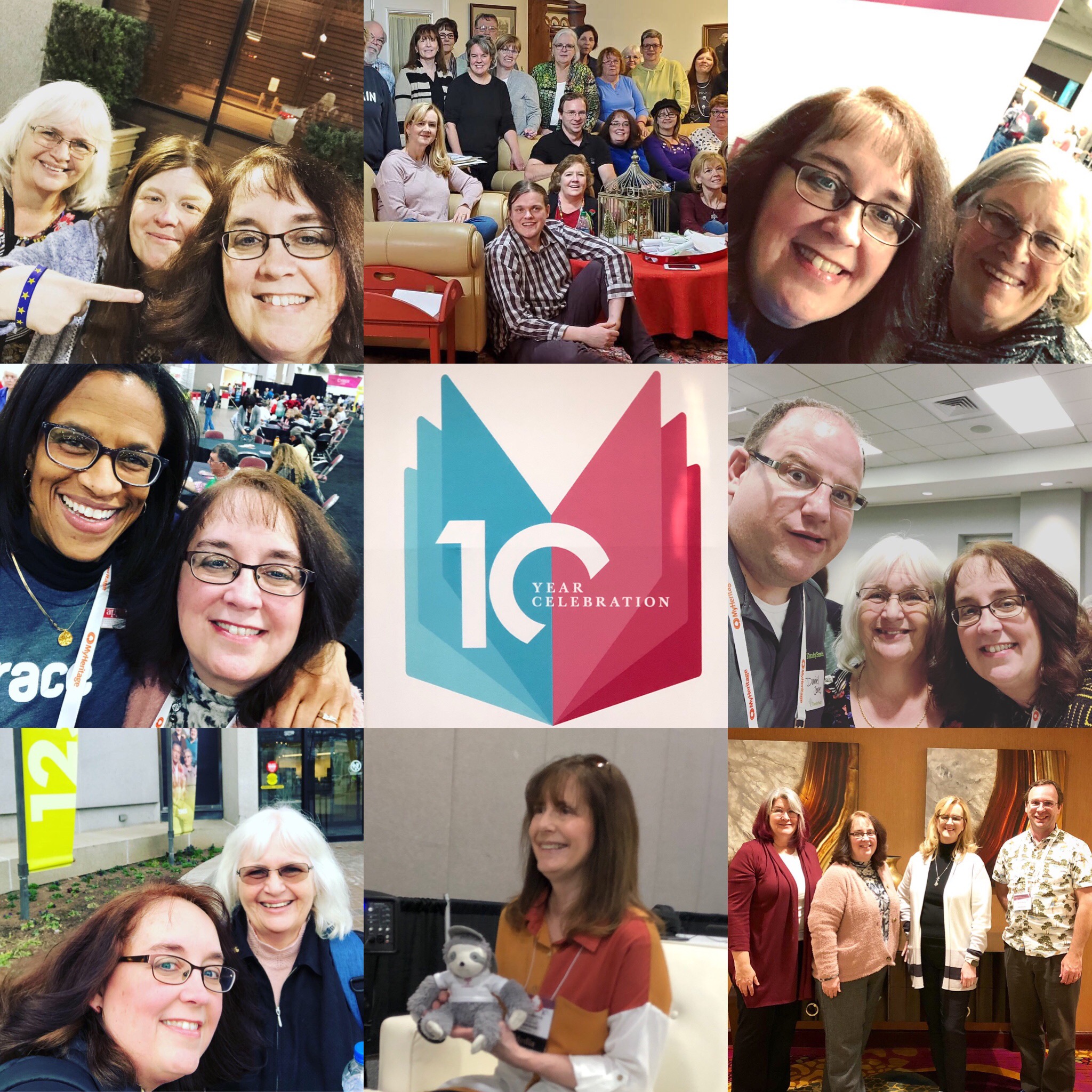 This time last year, many of us were happily traipsing around the Salt Palace in downtown Salt Lake City – wallowing in genealogy bliss – oblivious to the approaching Pandemic storm. Those memories will always be very poignant as the years progress, because as soon as we all got home, the world shut down. And indeed, I believe our world changed forever in many ways. One of the largest changes to hit was the inability to travel or gather in large groups. Effectively removing the on-site conference experience.
This time last year, many of us were happily traipsing around the Salt Palace in downtown Salt Lake City – wallowing in genealogy bliss – oblivious to the approaching Pandemic storm. Those memories will always be very poignant as the years progress, because as soon as we all got home, the world shut down. And indeed, I believe our world changed forever in many ways. One of the largest changes to hit was the inability to travel or gather in large groups. Effectively removing the on-site conference experience.
After such a difficult year for the world, this new experience is a sign that our genealogy world will never be the same. As officials have said, in the future, RootsTech will always have a much more robust virtual experience – regardless of whether we can attend in person or not. This is wonderful news – especially for the world-wide community that we are now connecting with in 2021. For all of the first time attendees out there, welcome to the RootsTech family! If you want to connect with me during the conference – visit the chat rooms for my individual sessions – or give me a shout out via my social media channels!
These are exciting days for the genealogy/family history community! Enjoy it to the fullest!

Introducing: The BloodRoot Podcast
Well everyone, I can finally announce the release of a project I’ve been working on for much of this Pandemic – The BloodRoot Podcast. Even though live since August – it has now been shared across multiple platforms and can be accessed via most of your favorite listening tools!
In fact, I’ve been working on this for most of the pandemic. Being trapped in my home for months on end got me to thinking about new ways to stretch my creativity. And as usual, creativity is always tied to the past for me. After exploring the options and doing a lot of logistical homework, I have embarked on what will hopefully be a fun experiment in storytelling and family history healing. My goal is to provide a listening experience that takes listeners through a family story or challenge slowly – in a way that makes them think along the way.
With each new episode I hope to empower listeners to explore the deep roots of their family history by preserving stories, advocating truth, restoring context, and fostering healing. Who we are is a fundamental question that often inspires genealogists to begin their journey. The search for our roots is deep seated in our blood and DNA, and yet it’s all more complicated than those two simple concepts. In fact, our humanity makes everything more complicated – which begs the question, why would our history be any different?
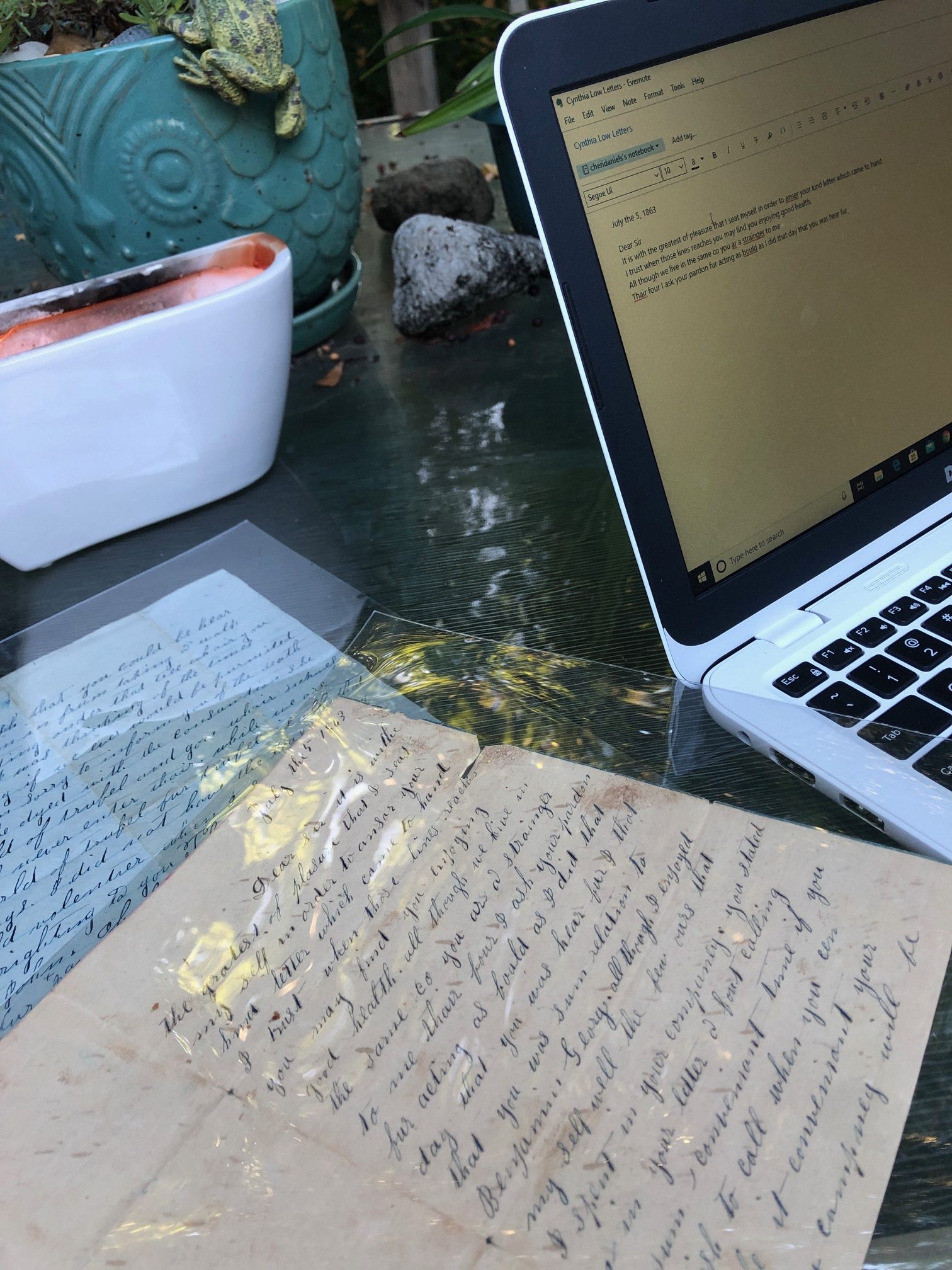
So settle in, grab a cuppa, and prepare to be inspired by our ancestors and their life journeys.
Not the sterilized versions we’ve come to know – but the real stories, rooted in real people with real challenges and flaws. By celebrating our ancestors within their human complexity, we learn so much more about ourselves, what it means to be family, and how we are all connected to one another.
Since August, I have been slowly publishing episodes, with a total of four available at the present time – on most of your favorite podcast listening platforms. My current rate is only about once a month as I explore the possibilities of this new outlet. The episode guide can be found on the “BloodRoot” page of this website – and may contain some supplemental information if the episode warrants.
If you have a story that you’d like to share with the listeners, or a topic you’d like to see covered, you can send me an email, message me through my various social media platforms, or leave me a voice message through the Anchor app. If you leave a message, I may include it on a future episode!
Join me as we uncover the BloodRoot of our family history!

Library Love: Research in the Time of Pandemic
All I can say about the past two weeks….Gee, that escalated quickly! As a genealogy librarian, this post contains a special message designed to further your research while supporting libraries in this difficult time. You see, for the past week, our historical society and library staff have been assessing, planning, re-assessing, and taking steps to provide service while keeping patrons and staff safe. It is a very tricky balance. Many reports you are getting include multiple notices of libraries closing down for the next few weeks, if not months ahead. These actions, while important for the safety of all, are worrisome for libraries as they continue to fight for funding and live in a world that makes them justify their existence despite their priceless (and proven) service to the community. As all of us look for ways to support local businesses and restaurants who may suffer during this time, please remember the libraries. What can we do if they are physically closed? Take your support virtual.
 Those Statistics Matter!
Those Statistics Matter!
I know this time at home is allowing us to catch up on organization, DNA matches, genealogy lessons, and reading. Time well spent. But just because the libraries may be closed to on-site visitation, does not mean they are closed to your research. Pay close attention to their websites. Most library websites will remain live – which includes databases you can use from home. As so much library funding is based on usage statistics, PLEASE keep those online numbers coming over the weeks/months ahead! We need them, and we WILL be counting them!
Keep Researching!
 There are currently many libraries out there who are closed to patrons, with staff still reporting. What exactly will they be doing with a library devoid of patrons? They will be purchasing books, cataloging them, planning future programming, providing virtual reference/programs, some curbside book delivery, digitizing material, and maintaining those databases we can use from home. And the databases themselves are VERY diverse in what they can offer your research:
There are currently many libraries out there who are closed to patrons, with staff still reporting. What exactly will they be doing with a library devoid of patrons? They will be purchasing books, cataloging them, planning future programming, providing virtual reference/programs, some curbside book delivery, digitizing material, and maintaining those databases we can use from home. And the databases themselves are VERY diverse in what they can offer your research:
- E-Book Circulation: If you have an active public library card, you can check out e-books for free! So many titles, only one pandemic – use it wisely!
- Interlibrary Loan: This MAY be possible depending on whether your library is being staffed. Even if they are not borrowing books, they may lend out material – and don’t forget articles – they can obtain and deliver articles to you electronically.
- Digital Archives: SO many archives out there have digitization programs which post new content online for free. The catch is – many archives host their digital content in various platforms – meaning that each one may look a little different, or may be hiding in areas of a website that are not naturally intuitive. Take your time, and look through all of their database offerings – you may find a rich supply of primary sources on a local level.
- Genealogy Databases: Most of us already know about the free databases our library card can get us – but these are expensive for libraries to provide – don’t forget to use them during this hiatus from regular activities.
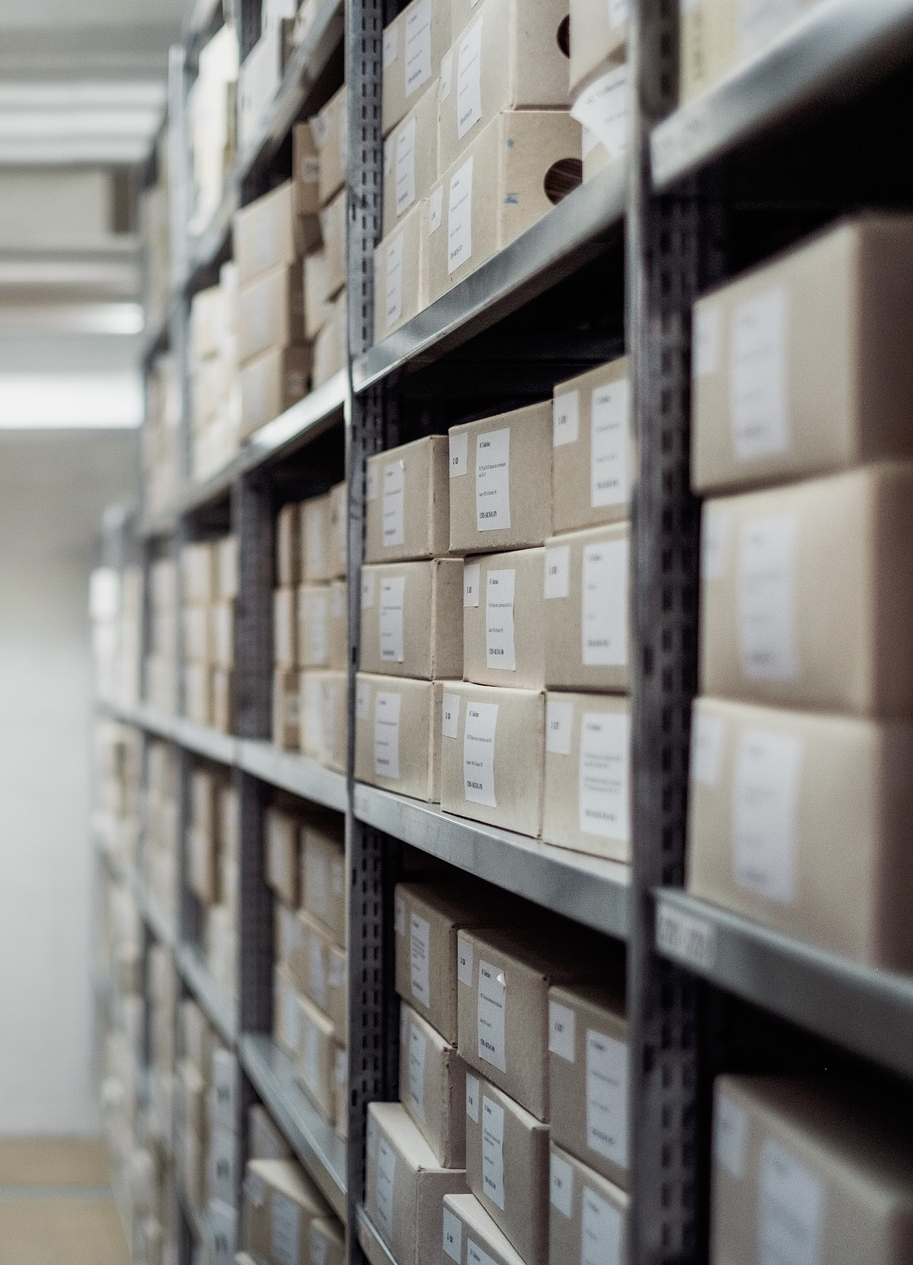 Note About ArchiveGrid:
Note About ArchiveGrid:
Most of you use this wonderful tool to search out local archives research. While this is a great tool – please be aware that this DOES NOT include every archive out there – far from it. This began as a subscription based database for libraries/archives. They previously had to pay a subscription in order for their archive to be included in this platform. Today, they claim that the entries are generated through web crawling of archival websites and finding aids – but when looking at their map, it is only a fraction of the great archival websites out there. For my state, they only include 15 archival repositories – and I happen to know there are close to a hundred more. Solution: Start with ArchiveGrid to look for regional/local archives, but when you see location holes, conduct a general internet search for an archive or archival collection that may apply to your region/location of interest – and don’t forget to look at every county public library website – several have history rooms with online content available. While the vast majority of smaller archives may not have been caught by ArchiveGrid, they can afford a website, many with digitized material. Boost their stats by visiting these sites often.
Internet Archive and HathiTrust:
While at RootsTech a couple of weeks ago, I listened to one of Judy Russell’s talks about copyright and the new content available with each new year. She physically demonstrated how much content was newly available now that 2020 had arrived. The result was thousands of new titles digitized and available – and full text searchable – through these great sites. Both of these sites are non-profit library connected sites and stay viable through usage. Google Books – while not library connected per se, utilizes library collections for their digitization efforts, and should also be used for your pandemic down-time research
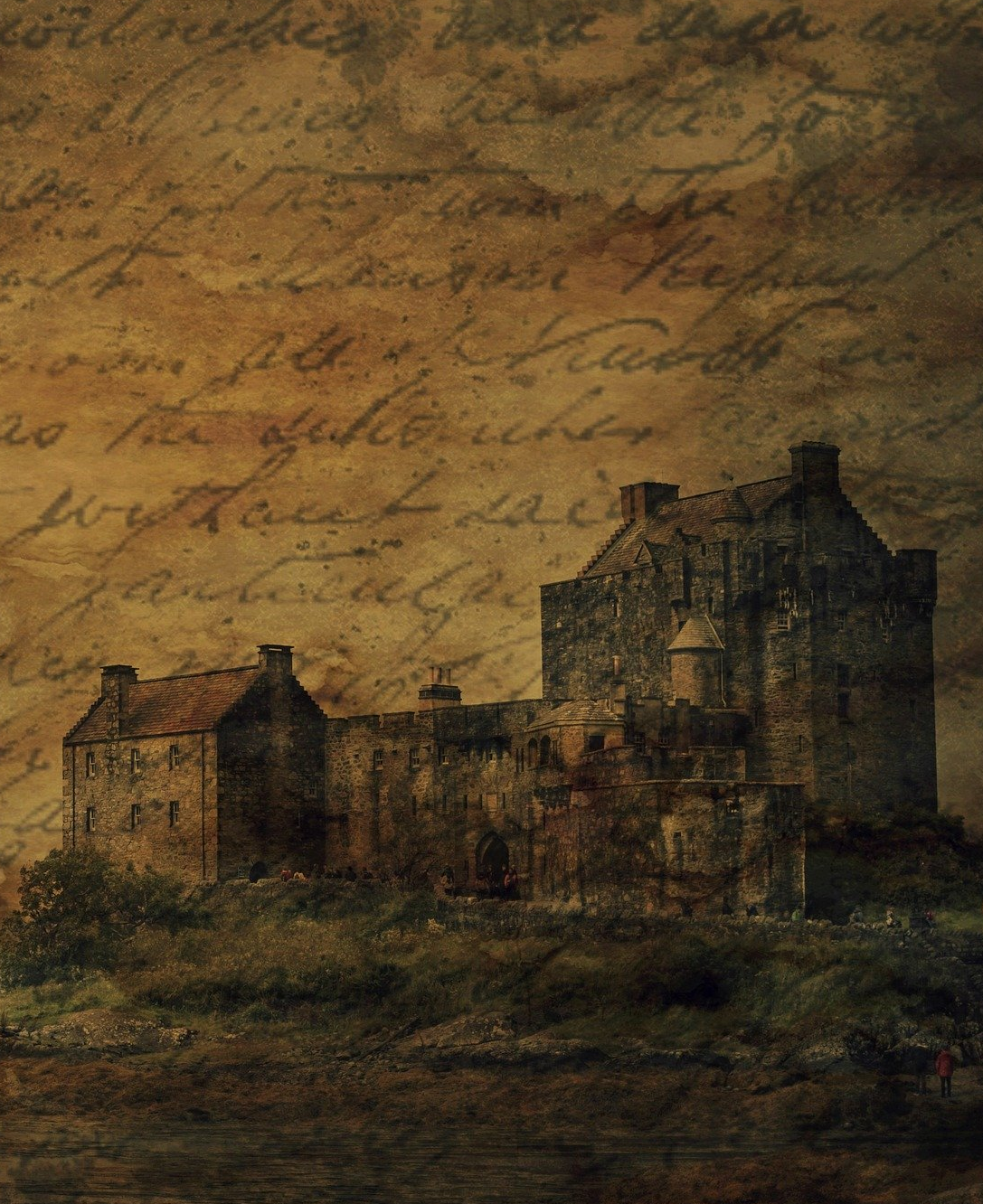 Time to Fill in that Local Context:
Time to Fill in that Local Context:
Again, I cannot reiterate enough the importance of taking virtual tours through the local historical societies, public libraries, colleges, and museums. Many offer free content that you can use from home to beef up the contextual knowledge/research you have about an ancestor’s place of residence or origin. Explore, gather info, and map out some of the information you find. I also encourage you to explore localities through the Library of Congress online offerings – and even the National Archives. I could go on – but time to explore and find great resources for yourself!
My Current Situation:
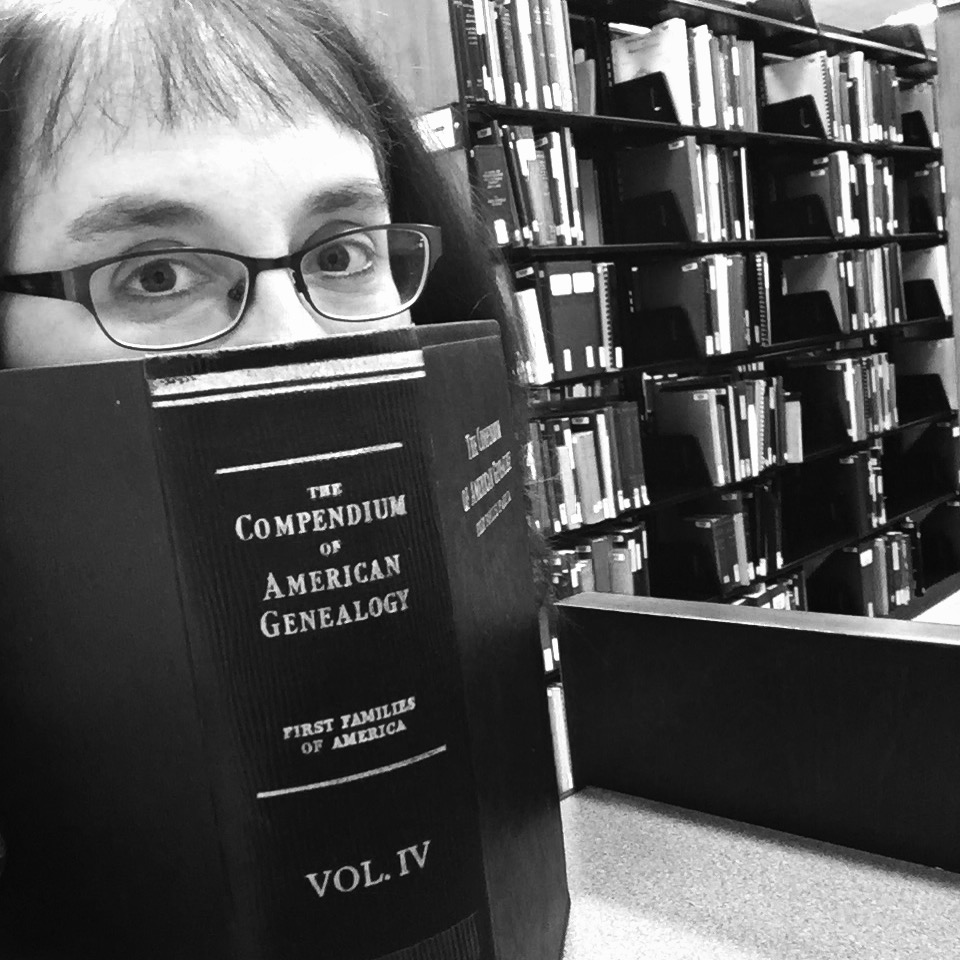 As of today, my library is closed to on-site visitors but our staff is reporting to maintain reference chains of communication. We will continue to answer phones, assist researchers via email, fill research orders submitted by mail, fill interlibrary loan requests, conduct programming research, and produce educational material from time to time. Of course, this may change in the future, but we will be tackling each day in its turn. Even if they close our doors fully, I anticipate continuing email and phone reference. And PLEASE, continue to use our free online databases/catalogs! We will continue to count those statistics, and every little bit helps.
As of today, my library is closed to on-site visitors but our staff is reporting to maintain reference chains of communication. We will continue to answer phones, assist researchers via email, fill research orders submitted by mail, fill interlibrary loan requests, conduct programming research, and produce educational material from time to time. Of course, this may change in the future, but we will be tackling each day in its turn. Even if they close our doors fully, I anticipate continuing email and phone reference. And PLEASE, continue to use our free online databases/catalogs! We will continue to count those statistics, and every little bit helps.
As a library/archives professional who has worked in libraries for over 30 years, this is the craziest disruption of service that I have ever encountered. And that includes the time we thought cornmeal dust in a book shipment was anthrax in the months following 9/11! We can get through this, but my most fervent advice remains: PLEASE REPEAT the above as much as possible over the next weeks/months! We do not know how long this situation will last, so please remember to show our libraries and archives some CONSISTENT virtual love!

RootsTech 2020: In Review
How do I begin to describe the 10th Anniversary of RootsTech? The only word that fits is “epic”. As RootsTech continues to grow past the decade mark, it is important to understand that the size of this conference means each attendee can have a completely unique experience. Today I will fill you in on the experience I had, including some great announcements that were made during the week. And to get a broader representation of the RootsTech experience, check out some of the blog posts published by other 2020 ambassadors!
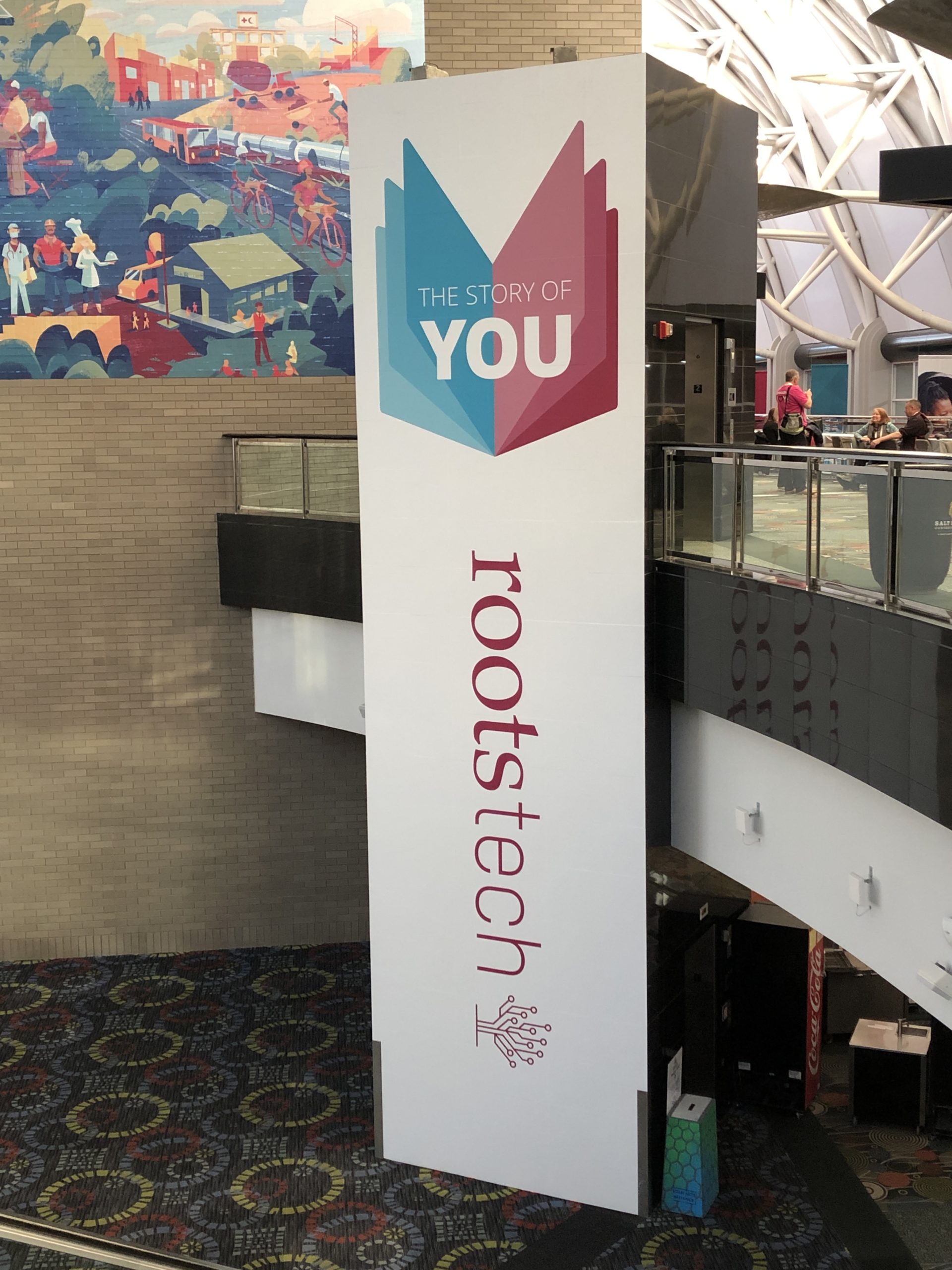 The Story of YOU:
The Story of YOU:
The biggest impact this year had to be “The Story of You”. As the theme of this year’s conference, you could see it everywhere. And as a librarian, the book motifs were geeking me out quite a bit. It reminded us all that our story and our ancestors’ stories are very intertwined. The story chain would not be complete without our story – urging everyone to buckle down and include their story in the family narrative.
By far, the best visual for this theme had to be the “What’s Your Story” interactive display. Attendees were encouraged to write a snippet of their story in one of the hundreds of empty journals lining the balcony on the second floor. By the time the conference was over, most of the pages were filled with colorful comments and stories.
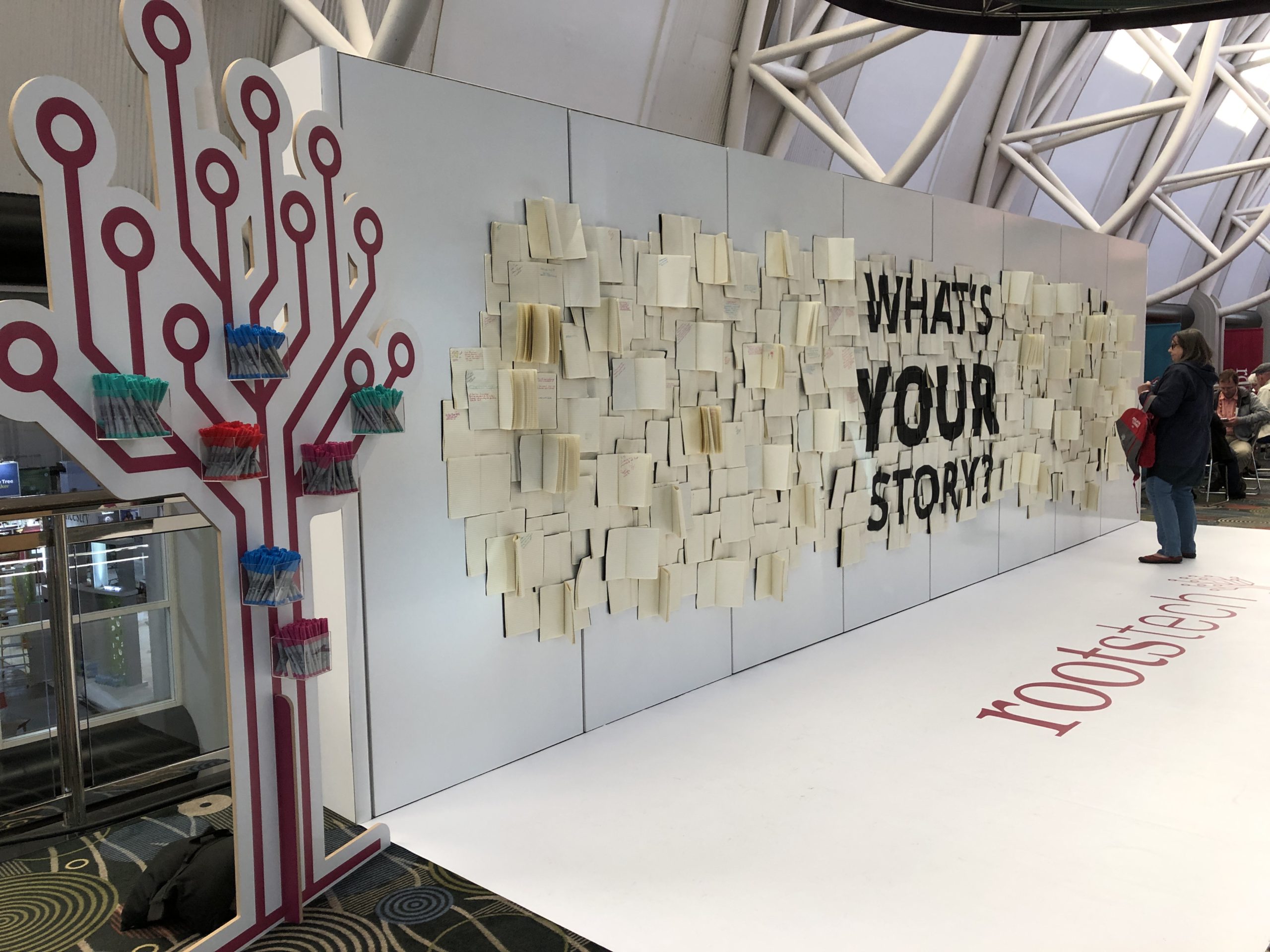
Wearing Many Hats:
This year, I attended as both a speaker and ambassador which afforded different experiences, yet flowed together pretty seamlessly due to the wonderful work of the RootsTech organizational teams. With all of the moving parts, and such a small planning team, what they achieve each year is pretty remarkable. Below I will outline the highlights of each role in 2020.
 Speaker:
Speaker:
As a speaker, I presented three sessions on various topics: Digital Citizenship, Difficult History, and Family History Preservation. Just remember that the syllabus material is still available on the app, and there are 20+ free sessions available right now in the 2020 video archive. You can watch my session on Tackling Difficult Chapters of Our Family History by clicking this link, or by watching the video link on the sidebar. I have to say, this session was my most rewarding so far, due to the sensitive and timely nature of the stories I included. Plus, I’ve had so many people thank me for the session, while sharing their difficult histories amid tears and hugs. We all have difficult chapters in the family tree – and this session will help you deal with them in a practical and sensitive manner.
For those of you who purchased the Virtual Pass, the recorded sessions are still being processed and should be available within the next few weeks. The Virtual Pass is still available for purchase until September. If you opt for this option, the 30+ sessions in combination with the free sessions will give you access to over 50+ sessions. Since no attendee can get to all of the sessions physically, this is a great way to keep learning from RootsTech over the coming months!
Ambassador:
As a RootsTech Ambassador, we are given certain updates and information to share with you all. Some of those highlights include:
RootsTech is heading to LONDON this fall! This, by far, was the biggest announcement by Family Search. Save the Date: November 5-7, 2020. Registration is already open.
Interview with Dan Call and Bryan Austad: These two Family Search “Experience Managers” are the masterminds behind the Discovery Centers – found in the Expo Hall and on the 1st floor of the Family History Library. Dan was even instrumental in helping to create RootsTech 10 years ago. So, they shared their views on how much the conference has changed, and their desire for the future of the Discovery Centers. Be looking for additional ways to Discover your family history through an expanded experience Discovery Experience on your own PC – coming very soon!
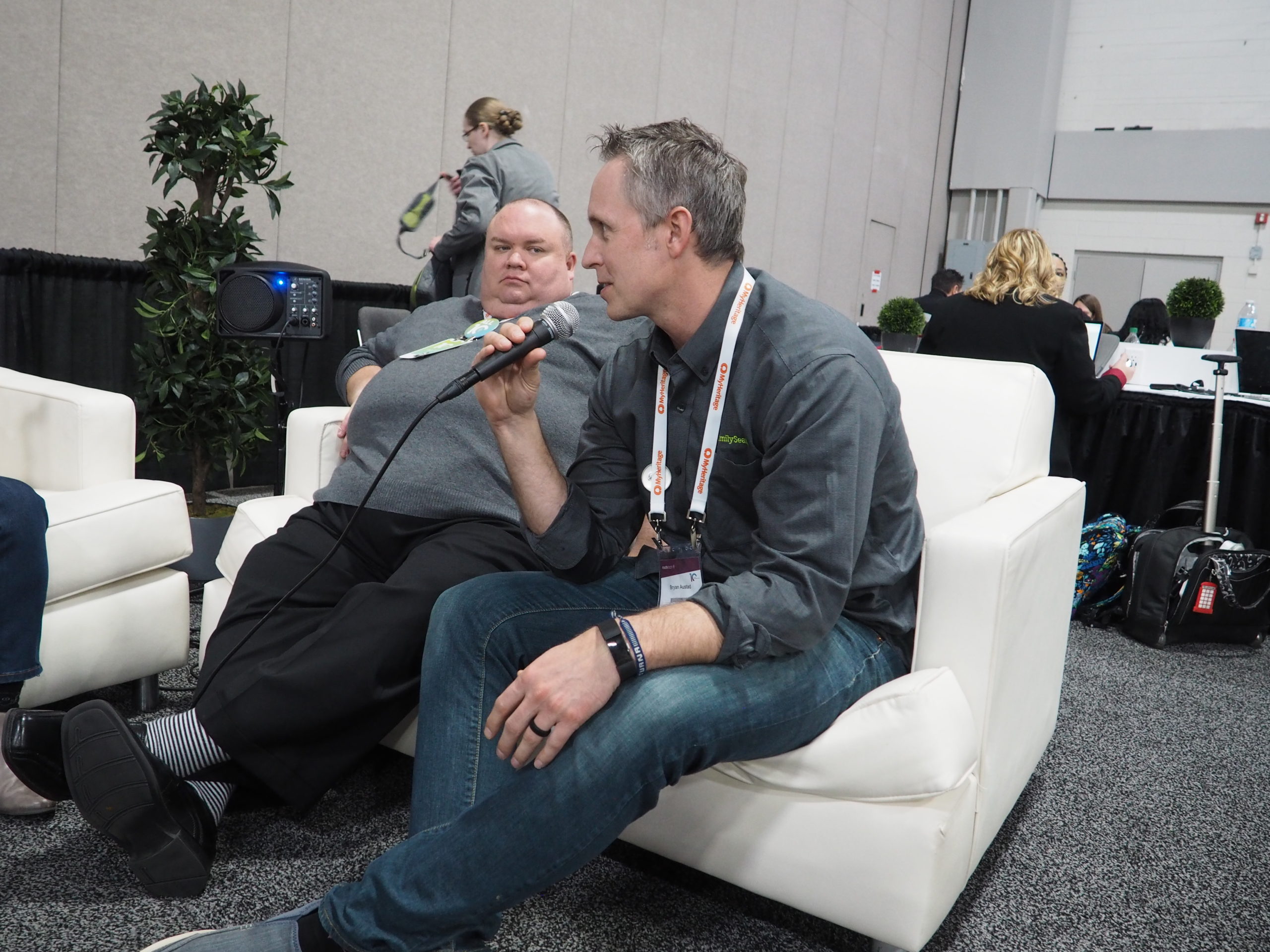
MyHeritage: During a dinner for Friends of MyHeritage (and throughout the conference) they showcased their new photo colorizing tool that quickly colorizes old black and white photos with the click of a button. They also announced a new U.S. City Directory collection that expands their digitized images to 1.5 billion.
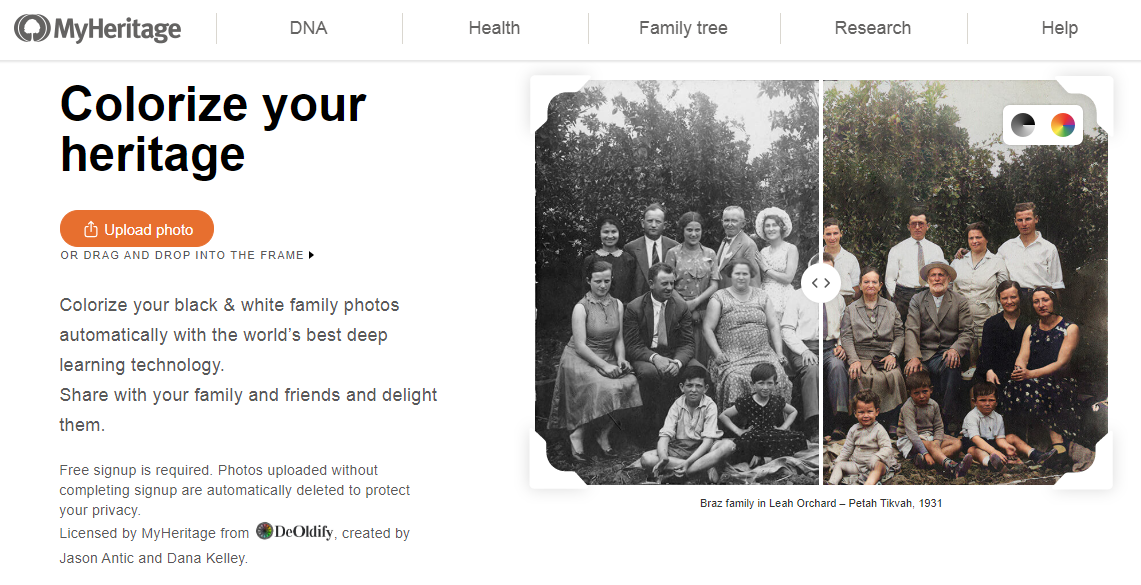
Biggest Takeaways:
For me, the inspiration of the keynote speakers, and the importance of telling our stories had the most impact. We’ve all told ourselves to get writing, but this year, the tools available to help us, and the fleeting nature of life have spurred me to once again pick up the pen. We have work to do!
Fun Additions:
For this year, there were some cool additions that had us playing and learning at a greater rate.
Virtual Reality: There was a huge booth designed to allow VR participants to explore the land their ancestors called home. And for those who had ancestors on the Mayflower, MyHeritage was adding a fun twist to the experience.
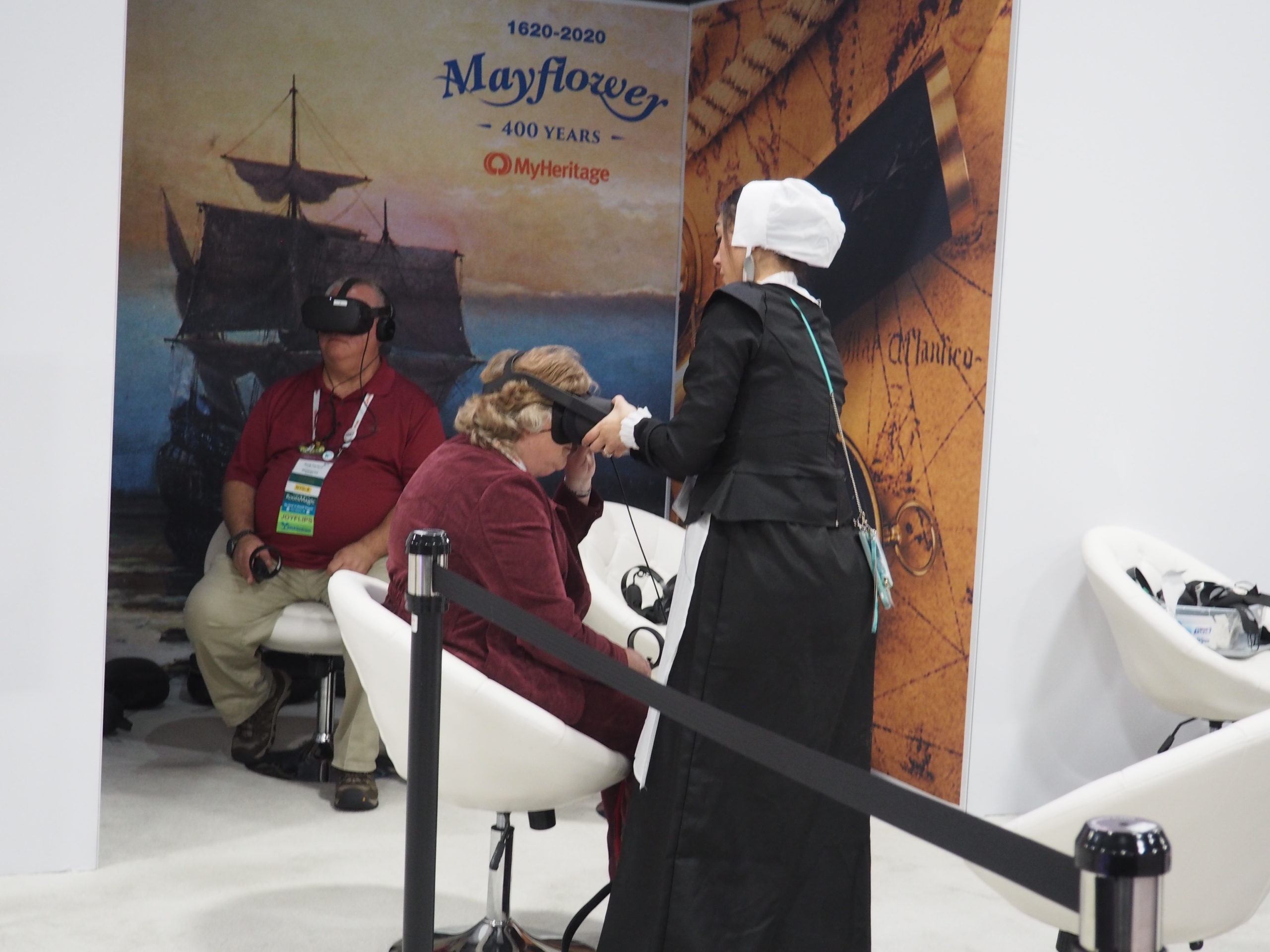
The Discovery Center: Was expanded this year and placed in the center of the Expo Hall.
Shuttle to the Library: This year, there was a shuttle taking folks to the library and back to the Salt Palace – If you missed the shuttle, there were new, helpful sidewalk signs to help you find your way!
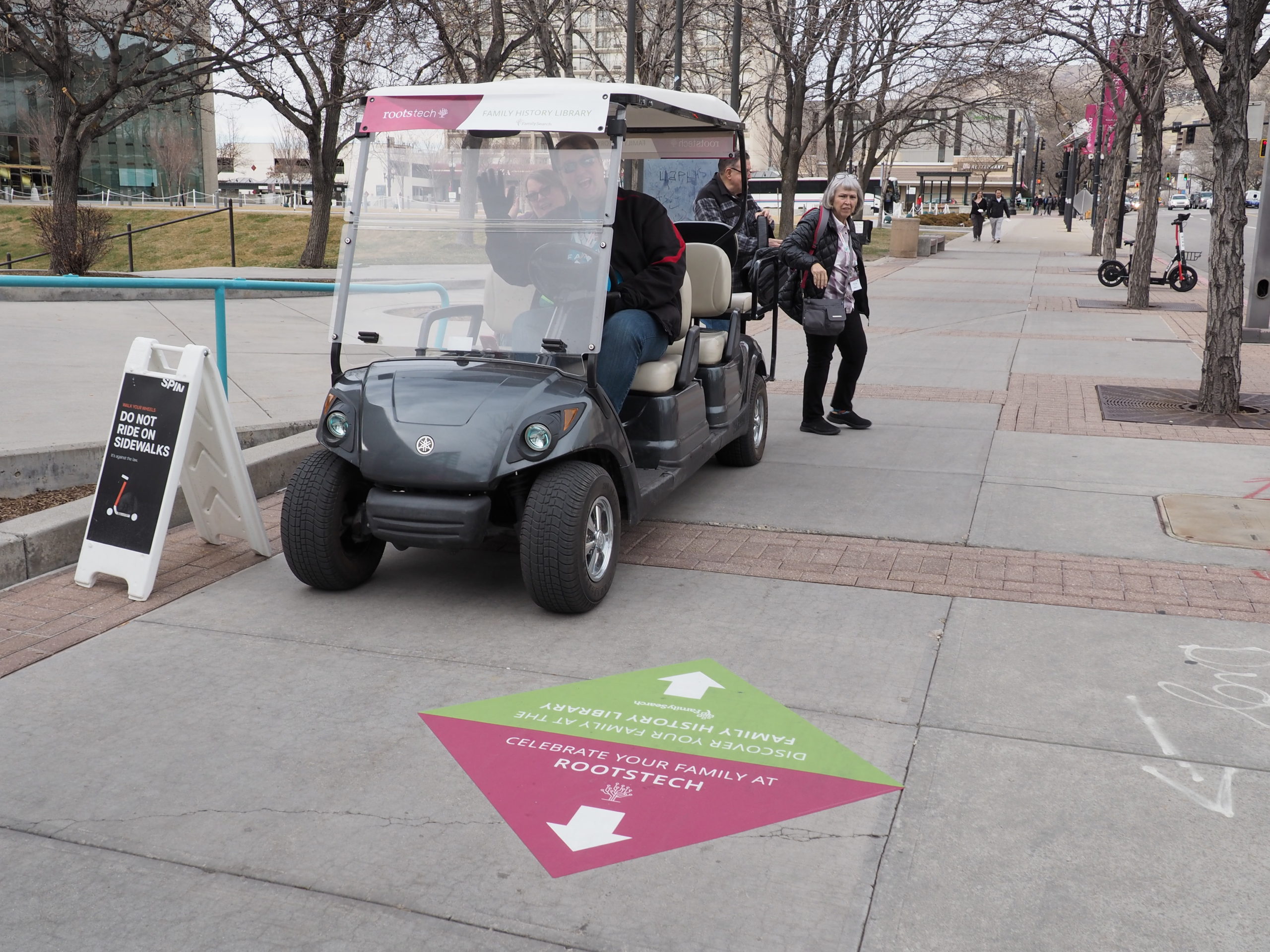
Thanks again to the organizers! They rocked it once again, and demonstrated how strong this conference is after 10 years. I was there the first year, and each year I attend, I am more and more impressed – and always come home greatly inspired. I can’t wait to see what the next 10 years will bring for RootsTech!
Until next time!

